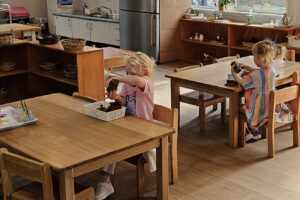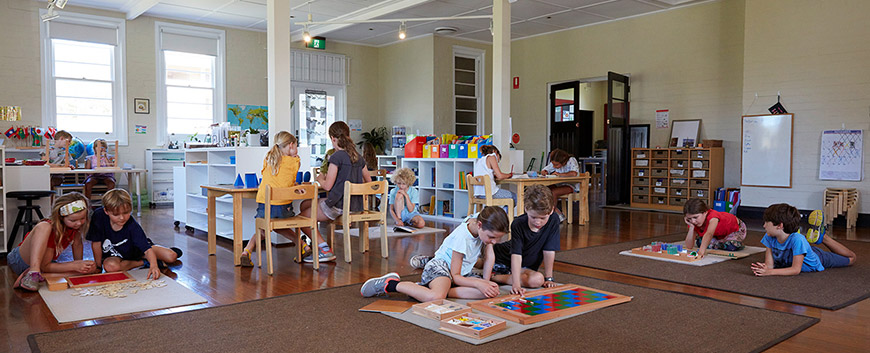2020 Newsletter Term 03 | Issue 01
- Posted by Farmhouse Montessori School
- Categories Farmhouse News
- Date July 31, 2020
Upcoming events & Important Dates
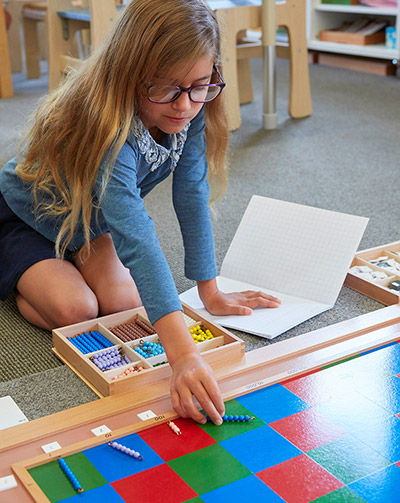
10-14th Aug – School Camp – stage 3 *Cancelled
Thursday 20th Aug – School Tour: Primary Campus – 9.30am
Wednesday 26th Aug – School Tour: Preschool Campus – 10am *Cancelled
24-28th Aug – Book Week
Monday 31st Aug – Music & Poetry: Primary 4.30-6pm *Cancelled
Monday 31st Aug – Maria Montessori’s birthday
Tuesday 1st Sept – Music & Poetry: Preschool *Cancelled
Thursday 3rd Sept – Fathers’ Day – Preschool Campus 8.30am *Cancelled
Thursday 3rd Sept – Music & Poetry: Preschool *Cancelled
Principals Message

Dear Parents and Carers,
Over the last five months, our community has lived the uncertainty of the COVID-19 experience, and unfortunately, it continues. As I write this, we find ourselves in a situation that requires absolute vigilance. The numbers are starting to plateau and with NSW Health working hard to contact trace all members of the public who may have come into contact with the virus, and with the help of the community, we are hopeful that the concerns will ease.
It is difficult to speculate what may happen next, however, what we do know is that we are stronger together when we care for each other as a community. I know that as a school we can rally well and support the processes in place to keep everyone safe and strong. When the COVID-19 pandemic first unfolded we did not know what we do now. We have bought time and understanding, and this has enabled our school to put into place a fulsome Covid-safe Plan and set up protocols and procedures to minimise our exposure to the virus.
Given the fluid and rapidly changing nature of this crisis and the fact governments are taking unprecedented measures to deal with it, we are considering all possible scenarios. I know this, too, is of little consolation, but one of the hard lessons of this pandemic is that it defies predictions.
As school continues as normal, we as a staff are vigilant to how our children are coping with change to routine and the measures that everyone has had to put in place. These changes can have significant impacts on the mental health and wellbeing of our whole community. Through careful observation and consultation, we continue to keep a watchful eye on the wellbeing of our students. When concerns arise, families will be consulted, and pathways of communication will commence to maximise the care towards our students. I feel honoured to work alongside a team who consistently demonstrate diligence, determination, love and care towards their students, to ensure that their health and wellbeing are of paramount importance.
Although the pandemic has meant that we cannot physically come together as a community, it is important that we realise how connected we still are, how much we can assist each other in times of need and how important it is to reach out if you need a shoulder to cry on, an ear to listen or a friendly chat.
I thank you all for your vigilance, your patience, and your sense of community during these testing times.
Be safe, take care and remember that we are just a phone call away.
– Gavin McCormack
ELOUERA | Stage 1 Infant Community
The library in our classroom is a much loved and visited resource. The children read books on their own, with their peers or bring them to their teachers to read. More often than not, it’s the same book over and over again. Most of the books in our classroom we could recite by heart. Even so, the books on the shelf remain the same. This is because something pretty special is happening as you read the same book over and over again to a child. Books are a huge vocabulary source for children, and when your child hears the same words over and over they develop a deeper more comprehensive understanding of those words in the book. You might also notice that your child’s favourite books feature pattern, rhythm and rhyming. Language is so much more than text and words, so when your child hears books read aloud in a rhythmic way they begin to understand how words sound and how they fit together. Finally, reading the same books over and over allows the child to begin to understand the essence of stories; they learn about reading comprehension, plots, characters, beginnings – middles and ends and the features of stories and books.
Children learn through repetition and consistency, so the next time you have to read ‘the very hungry caterpillar’ for the hundredth time that day, just know that you’re doing so much more than reading a story.
– Corinne, Debbie & Sarah
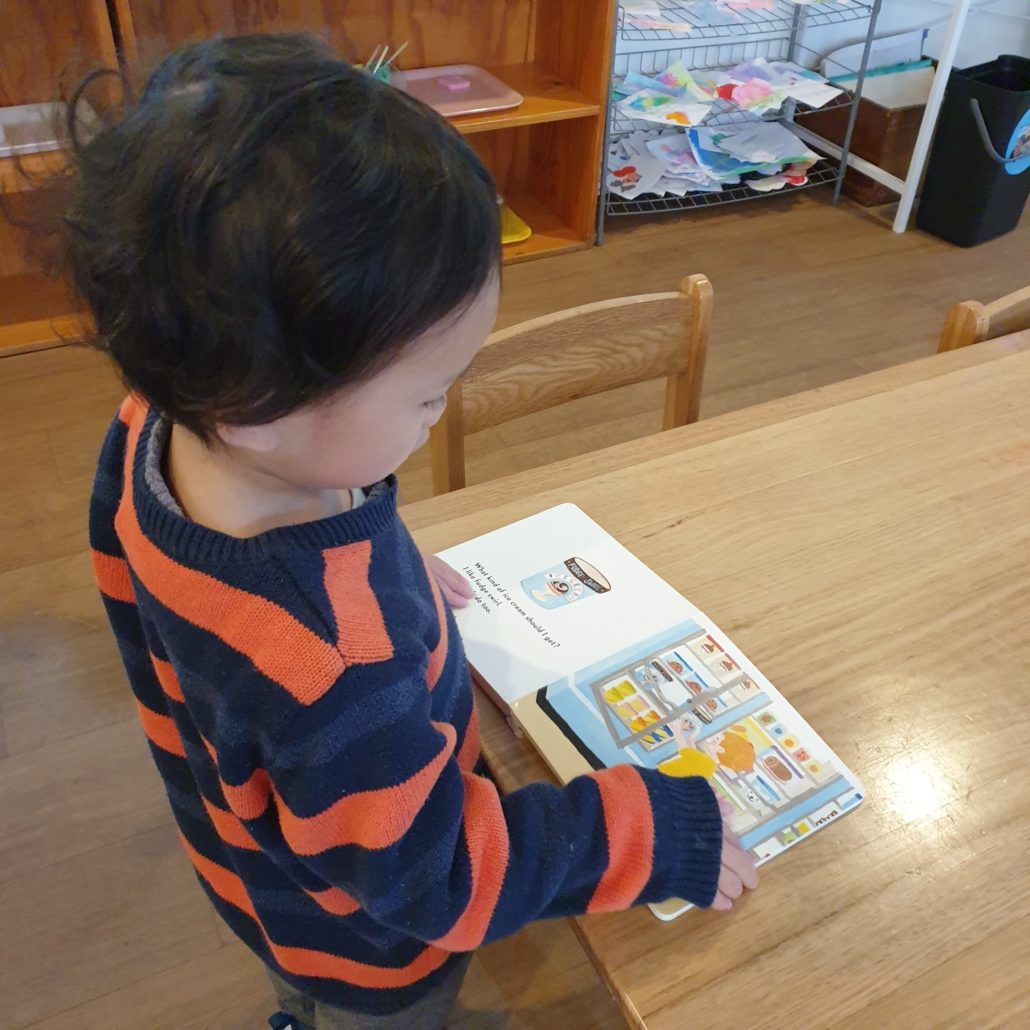
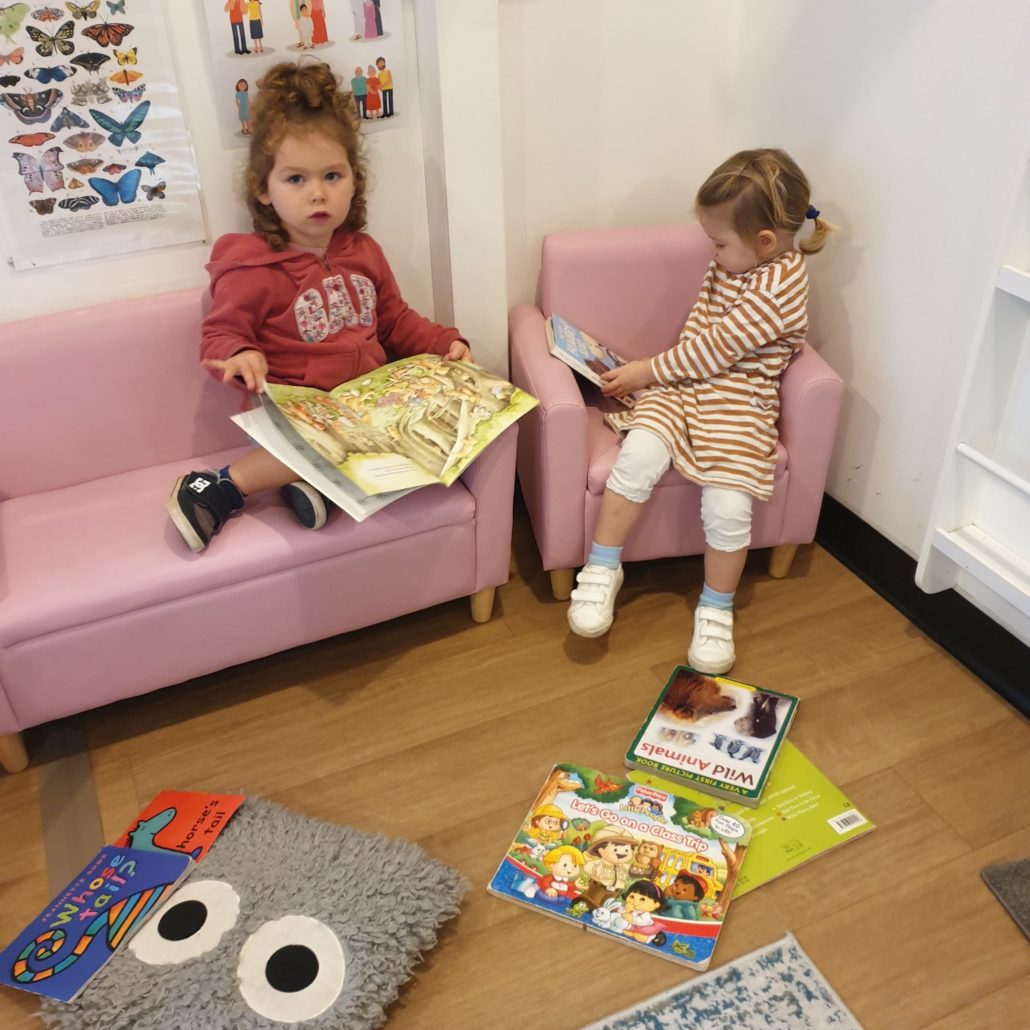
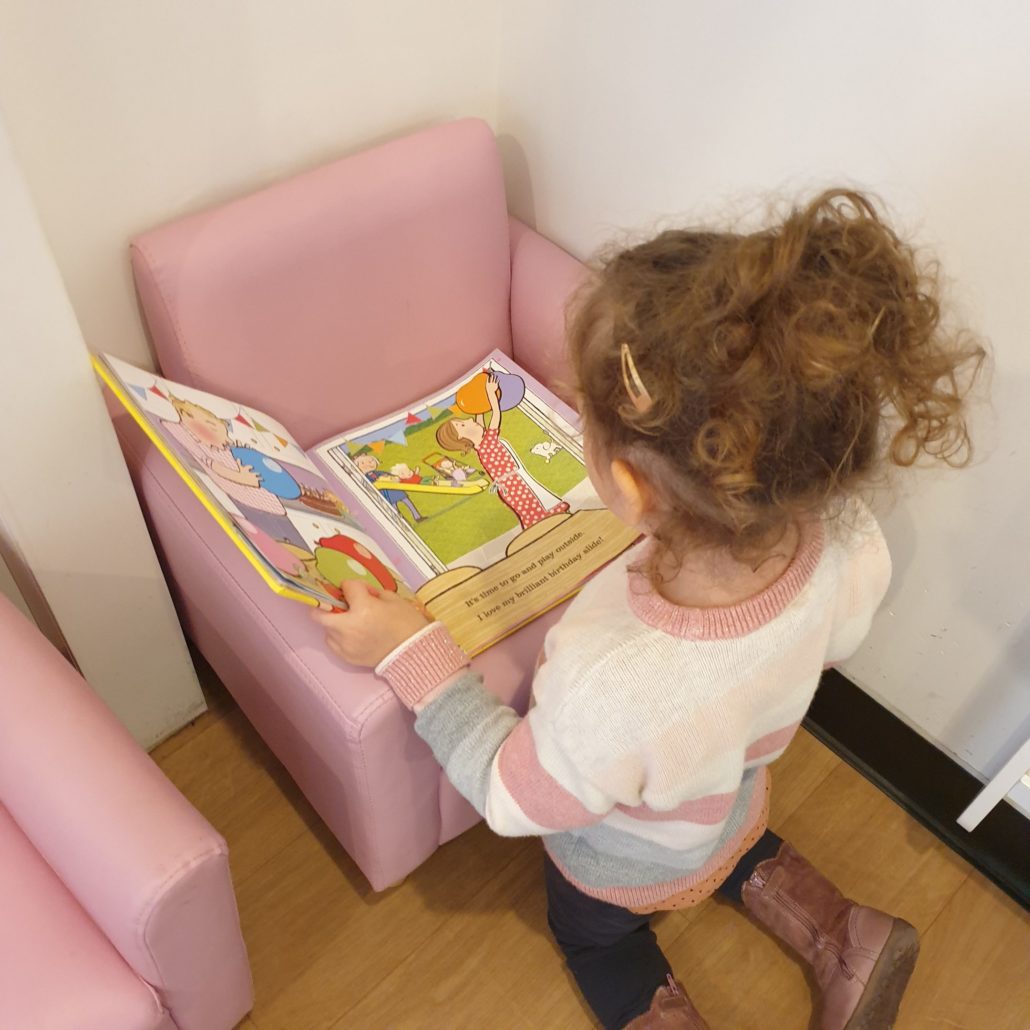
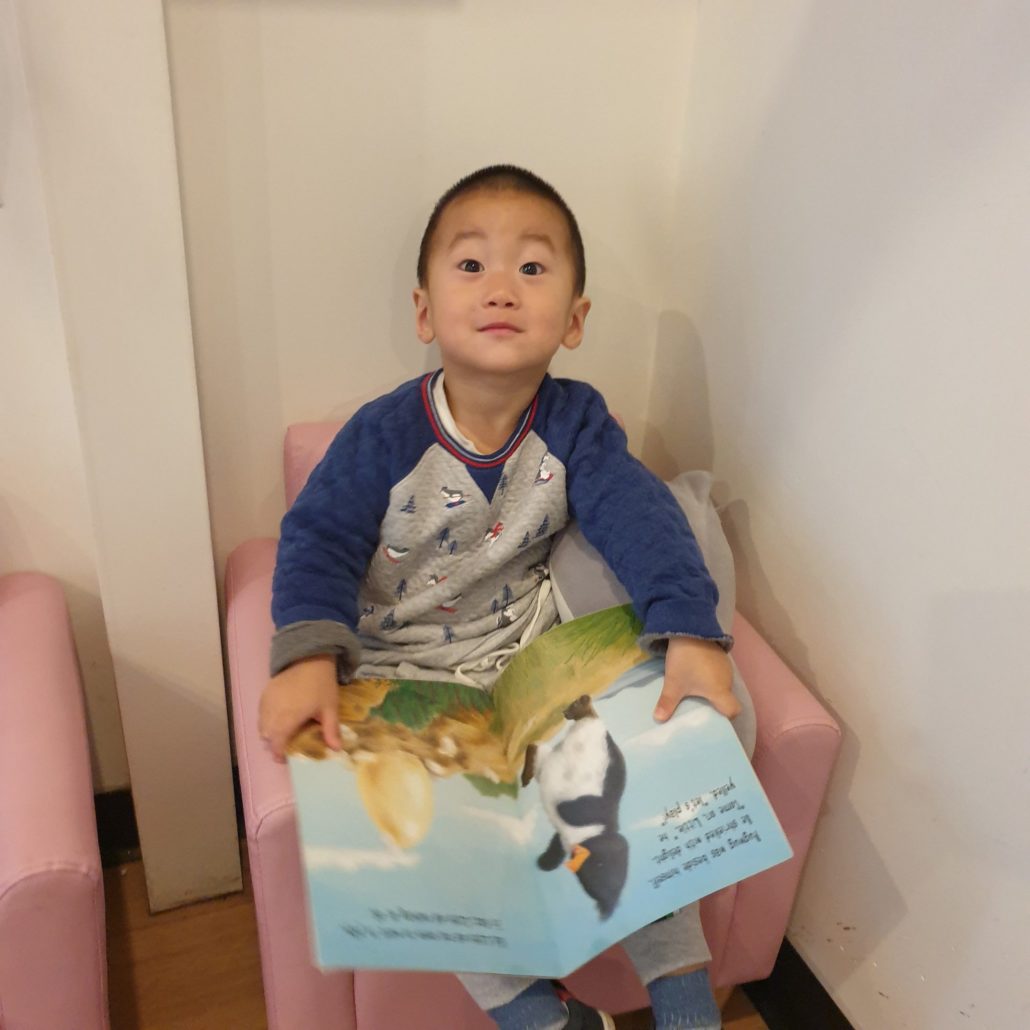
BURBANGANA | Stage 1
Montessori classrooms are divided into mixed-age groupings, such as from 3 to 6 years, and, the students stay with one class and one teacher for an entire 3-year cycle. The mixed-age classroom is fundamental to the Montessori method.
Older students have the chance to become mentors to their younger classmates, while learning and practicing important leadership skills. Younger children naturally look up to and emulate older children, and so in a classroom with a range of ages, there are always natural opportunities for a child to be a leader. Older students can learn the joy of teaching their younger peers.
Children learn a great deal simply by observing. Watching older children do their work not only provides a model for how to proceed, but it also motivates young students to practice and achieve mastery over their tasks. Both younger and older students have a chance to implicitly develop a “growth mindset” by observing all three years of the learning process in one classroom. Watching younger students progress from one material to the next teaches older students the value of practice and hard work. Conversely, younger students look up to their older classmates, and look forward to reaching their level of ability.
Multi-age classrooms give younger students the chance to learn not only from a teacher’s instruction but from the examples set by their fellow students.
– Amanda & Teresa
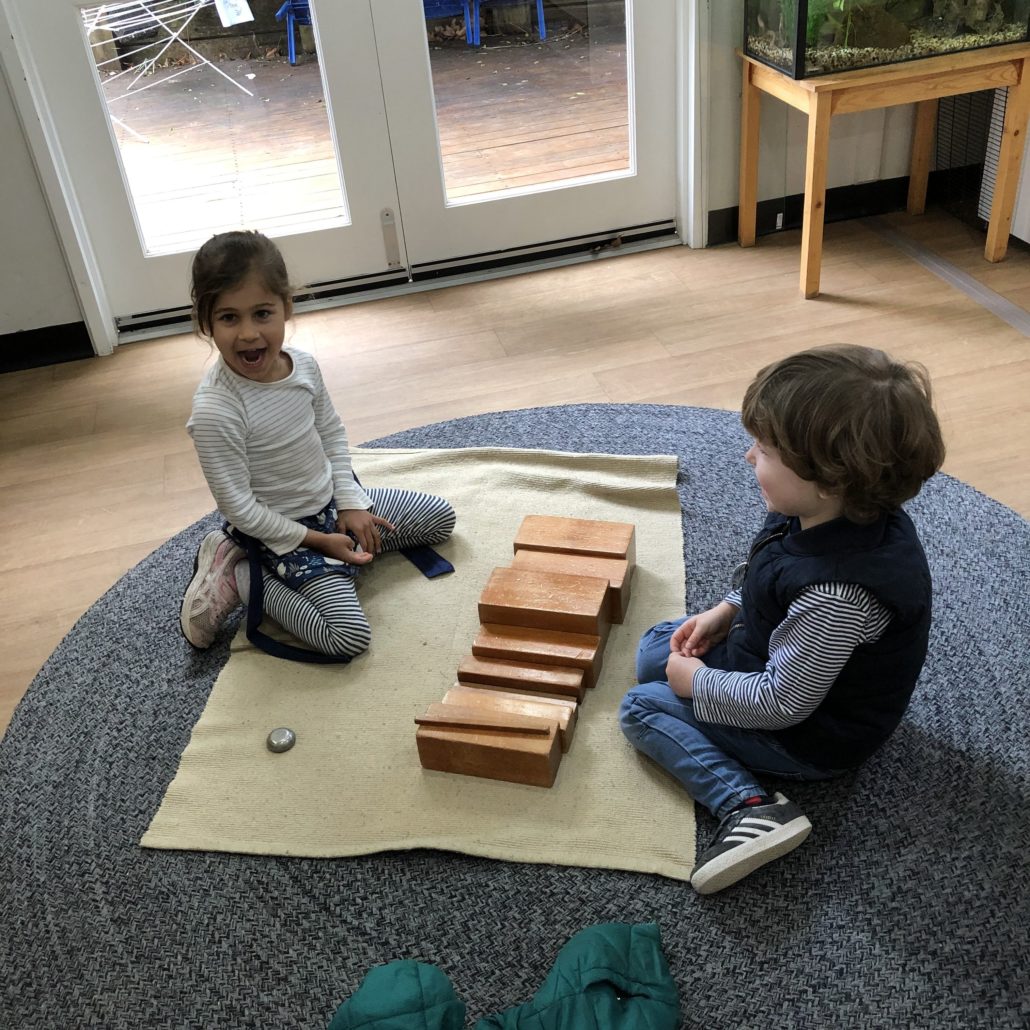
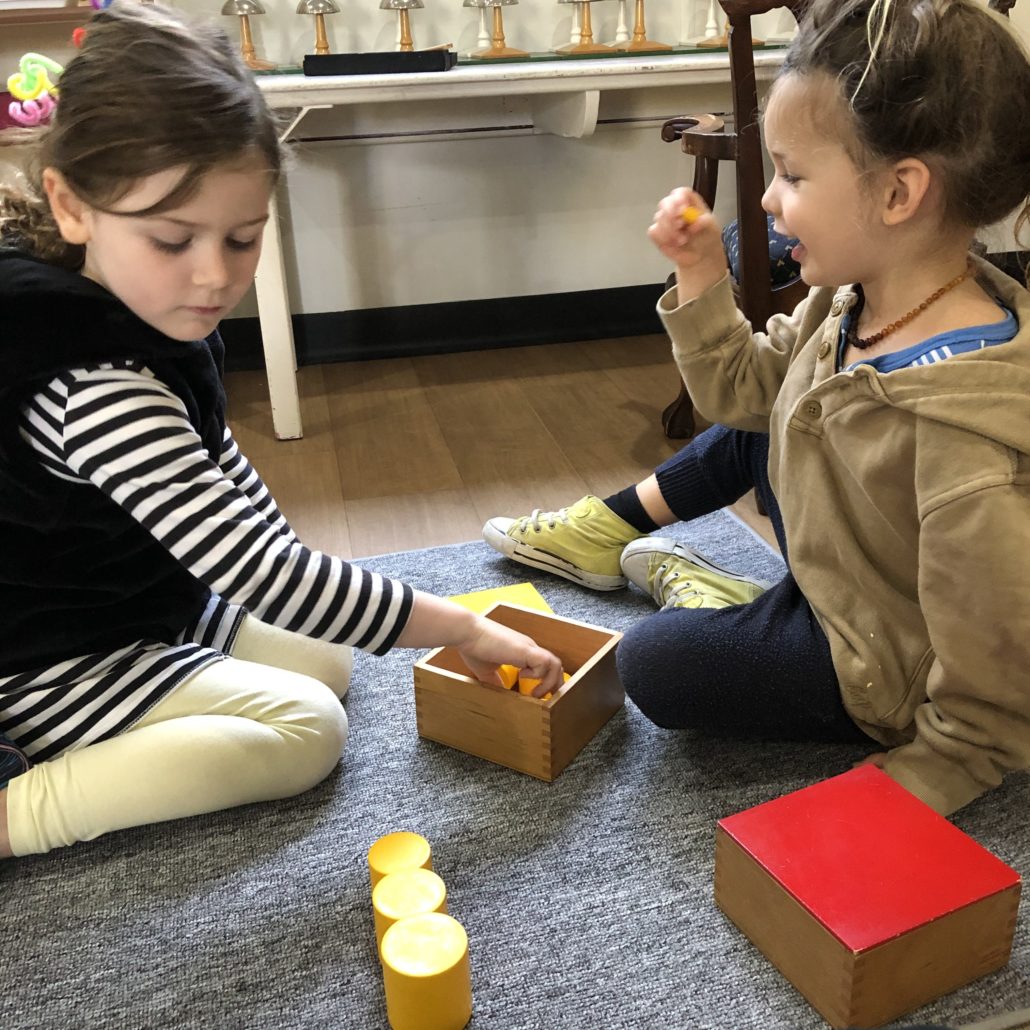
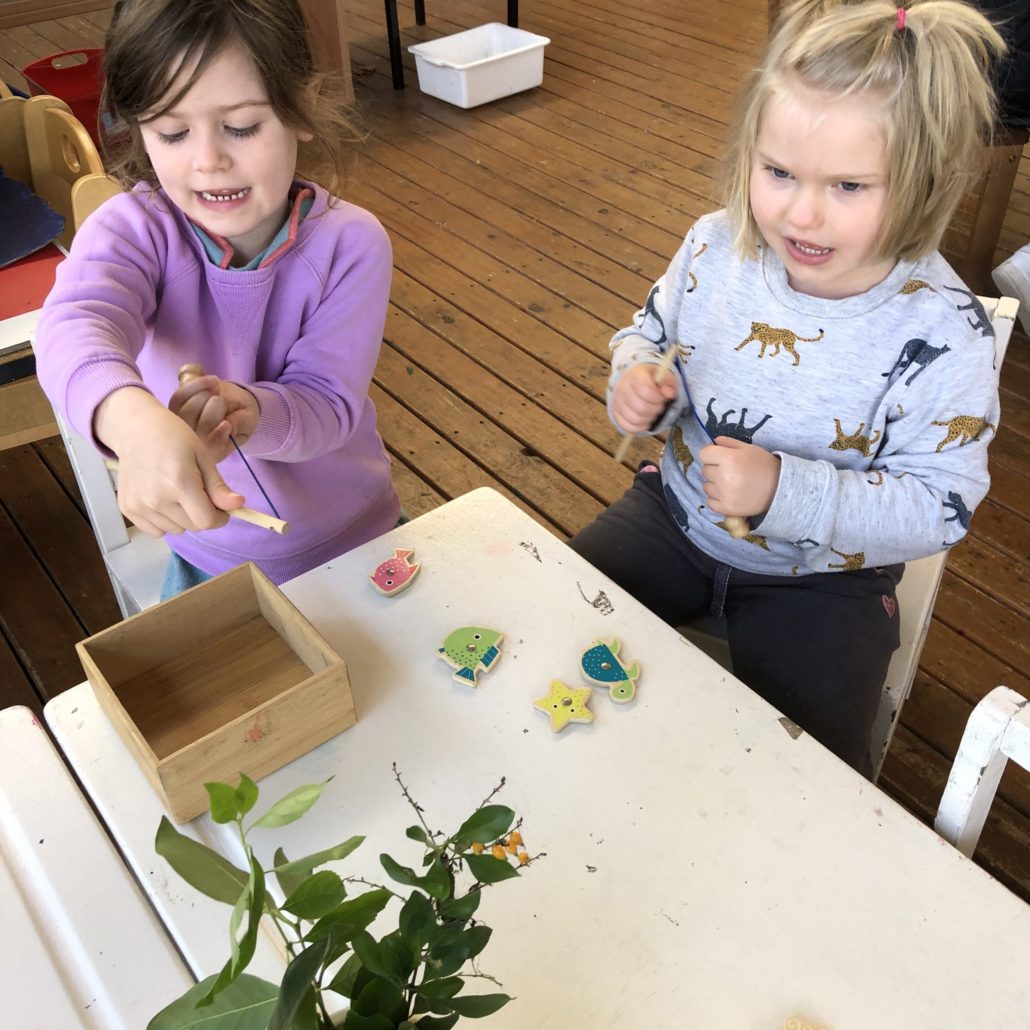
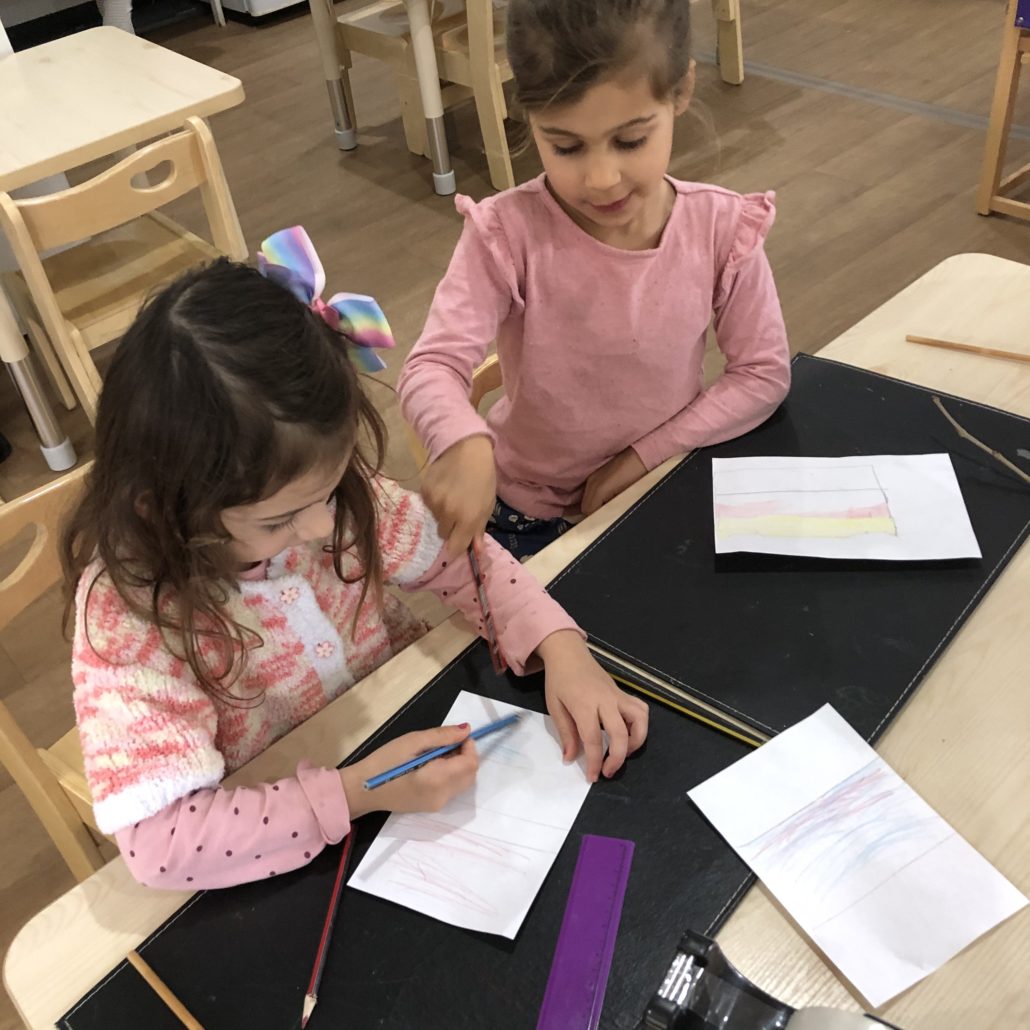
COOINDA | Stage 1
The children returned from holidays with lots of adventures to share with their friends.Their teachers also had adventures. When one of the teachers shared a photo of a huge tuna fish their husband had caught the children were very interested and they asked lots of questions. This led to an investigation on fish and parts of a fish. They were given the opportunity to look at a fish first hand and they could relate the parts of a fish to the real parts of a fish. Children at this age make sense of their environment through hands- on investigation. Having a
a collaborative team of little investigators around them helps children to share ideas and engage with their peers in the learning. Concrete and active involvement in learning develops problem solving, inquiry, hypothesising and investigating.
– Jenny, Jo & Angela
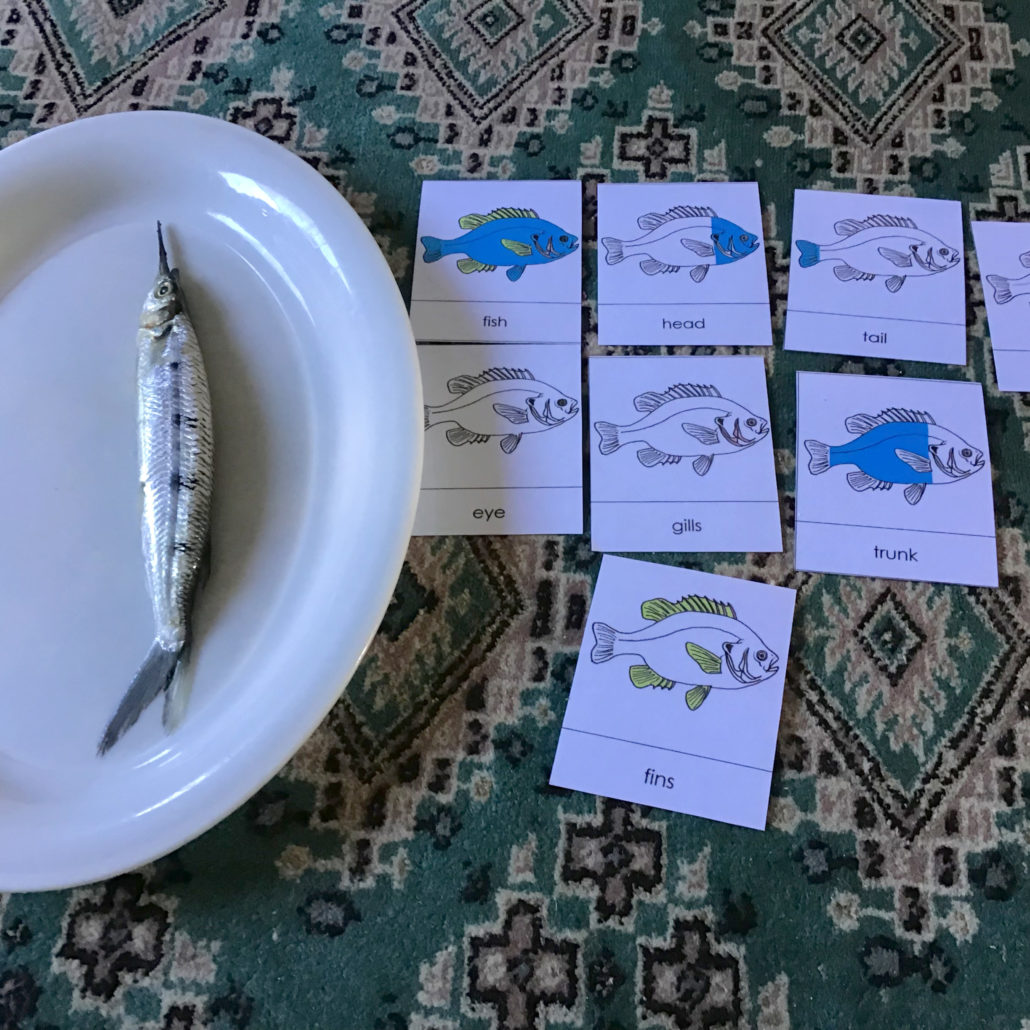
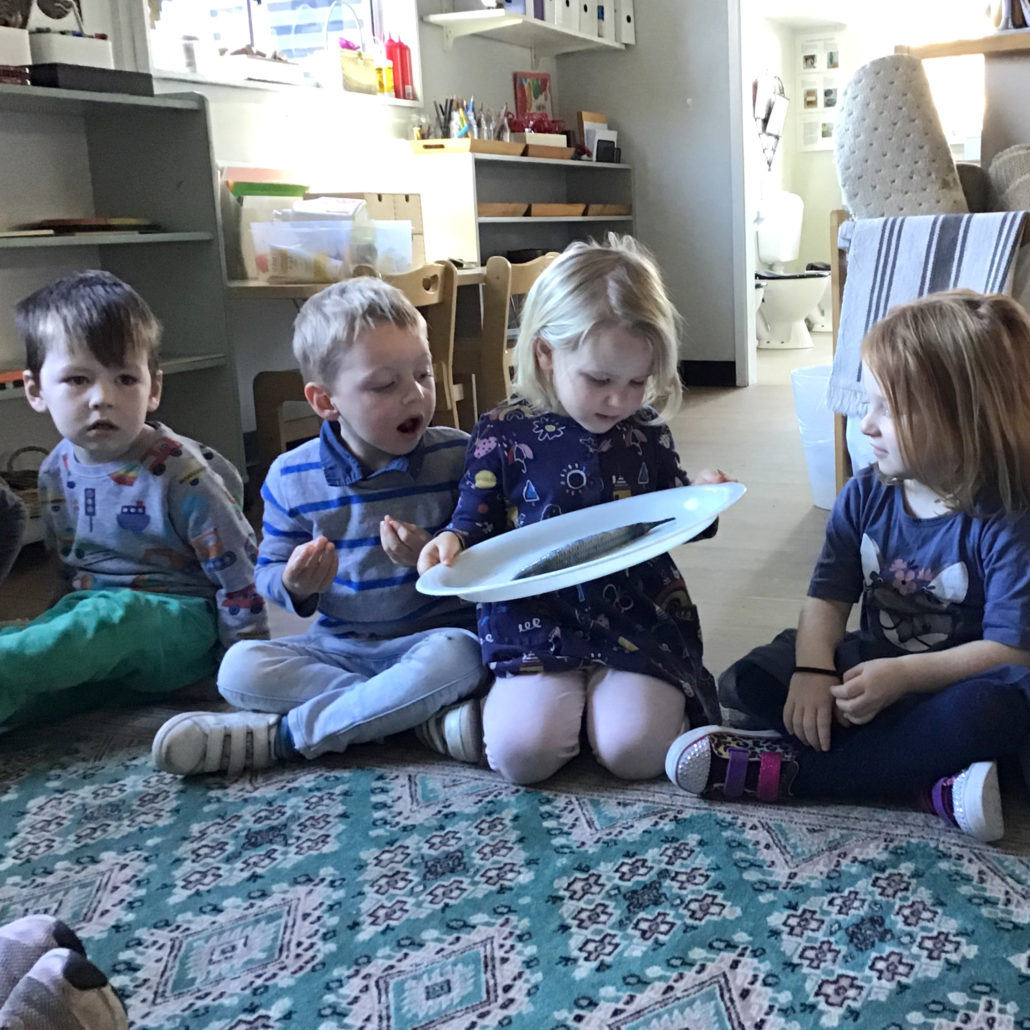
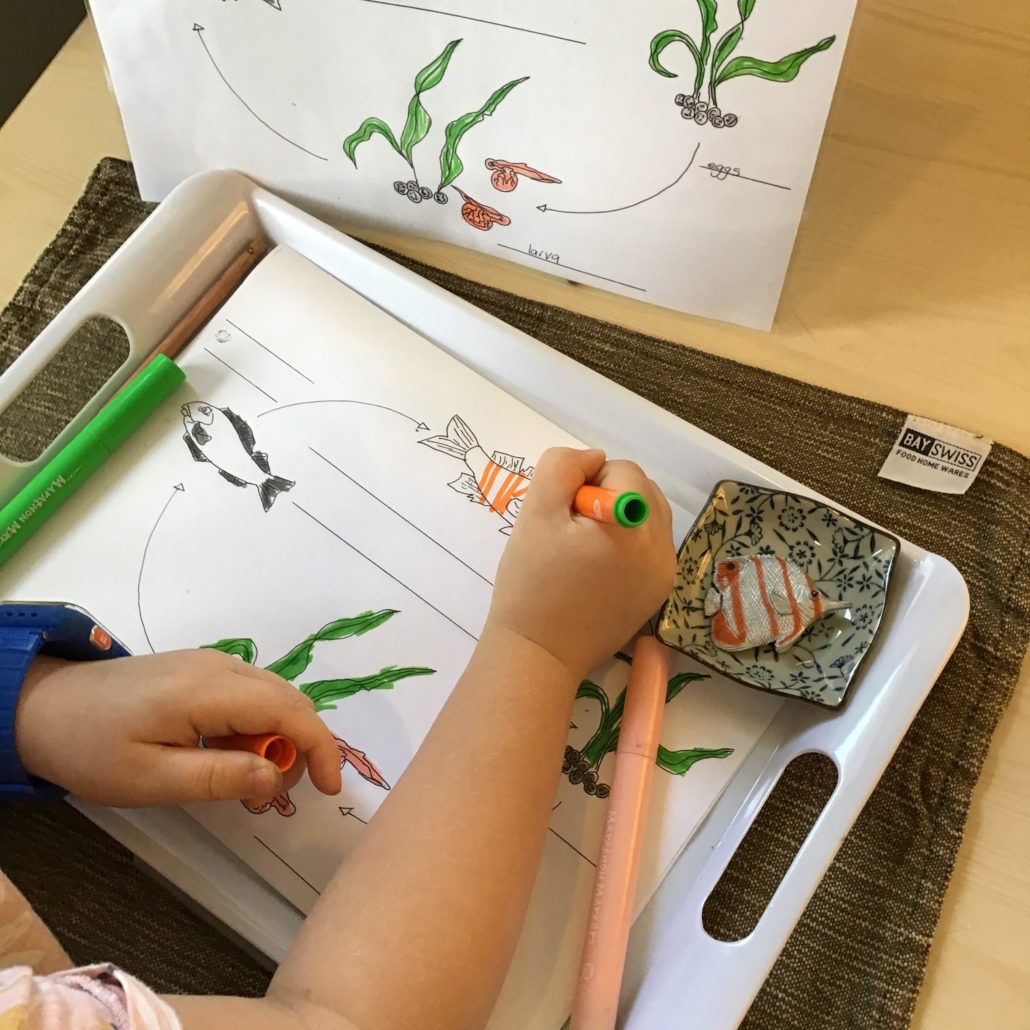
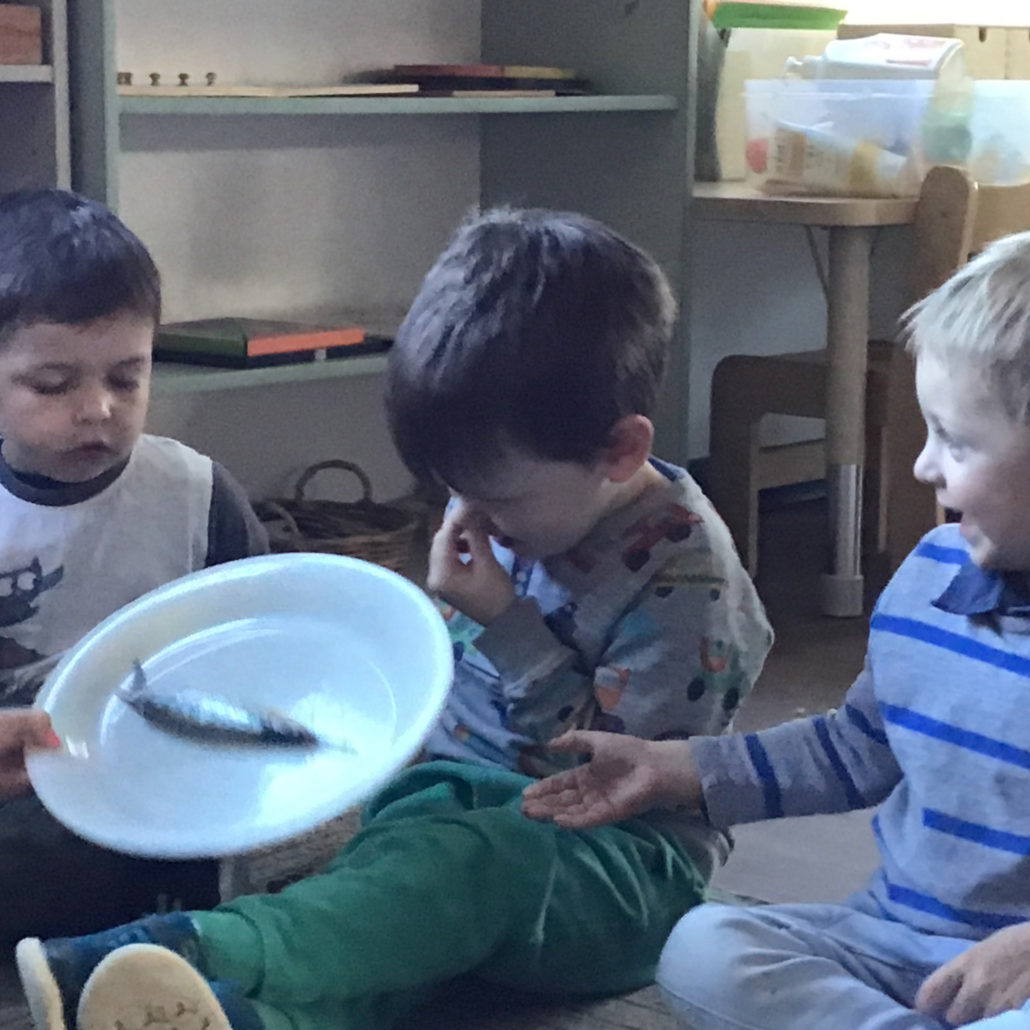
AMAROO | OUTDOOR CLASSROOM
When talking to the children about global issues like plastic pollution it can be a hard concept for them to grasp unless it’s made relevant to them. One thing we always do is speak positively, concentrating on what the child can actual do to help. Children naturally care about the environment and are inherently helpful so when you put these together the children love to get behind a cause! Last year we began collecting bread tags in support of a charity which sells the plastic bread tags to raise money to buy wheel chairs for people in South Africa.
With lots of bread tags around we have counted them, sorted them by colour, made patterns with them even connected them to make a chain. However ultimately we wondered who would buy the bread tags? We did some research and found an artist who recycles them to make these beautiful breadboards. So we bought one! The excitement was so beautiful to see when the children could physically connect what they had done with a product we can use and it saved over 5,000 bread tags ending up in landfill. Please keep collecting and bringing them in, the children are fired up to go for a bowl next time.
– Dawn
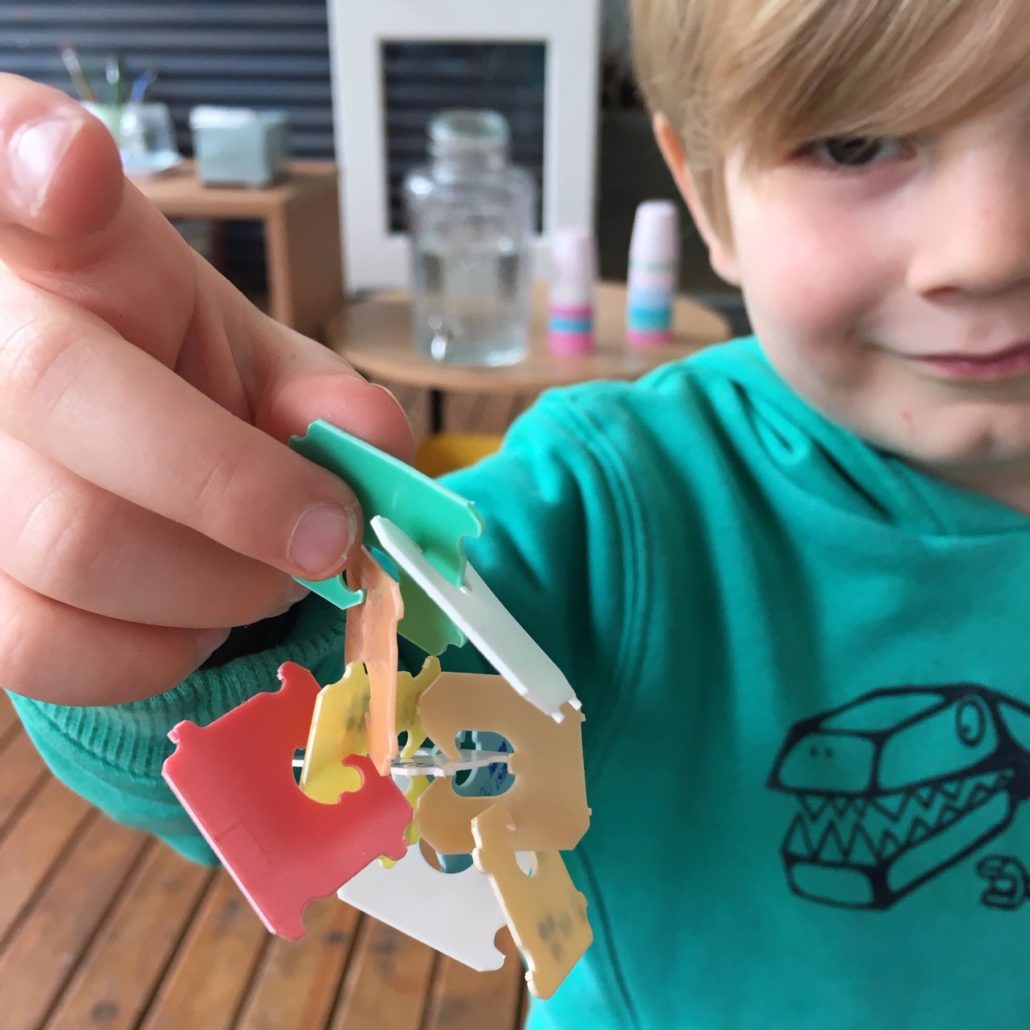
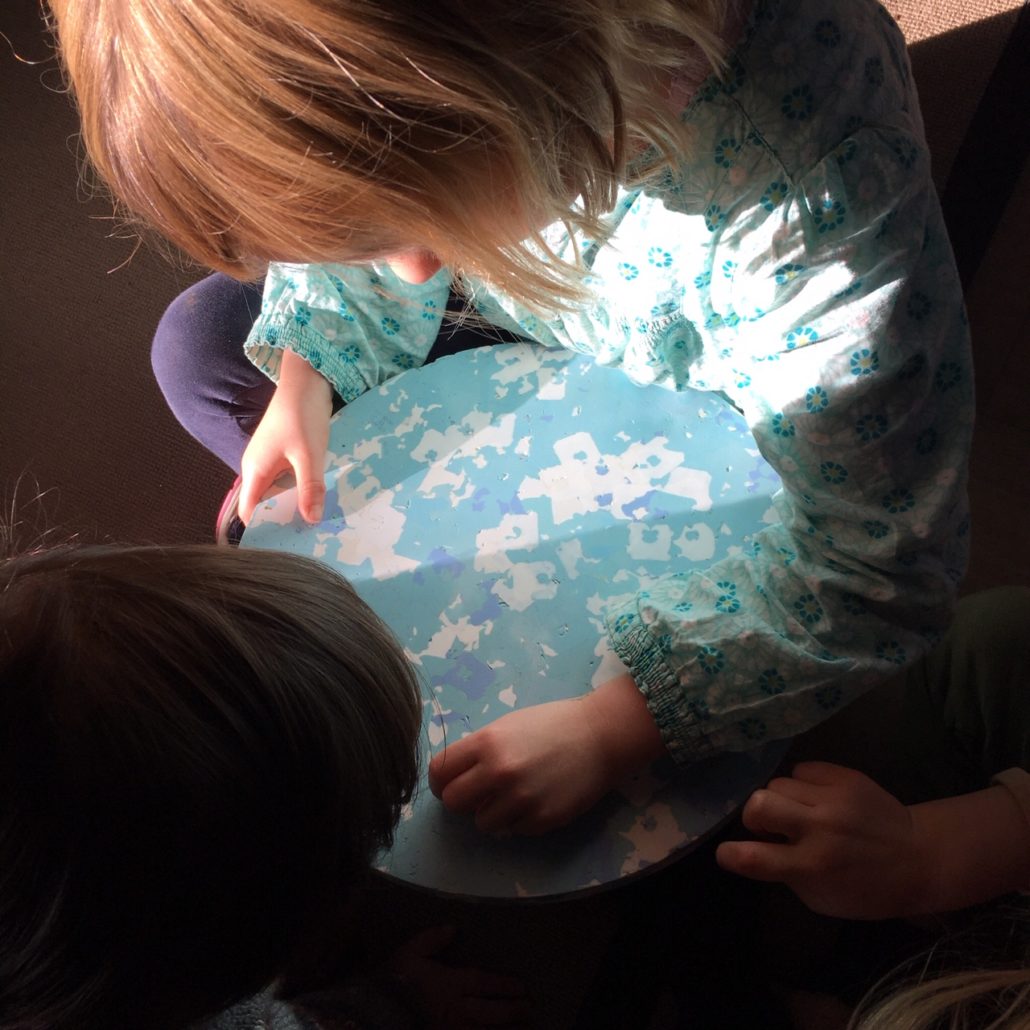
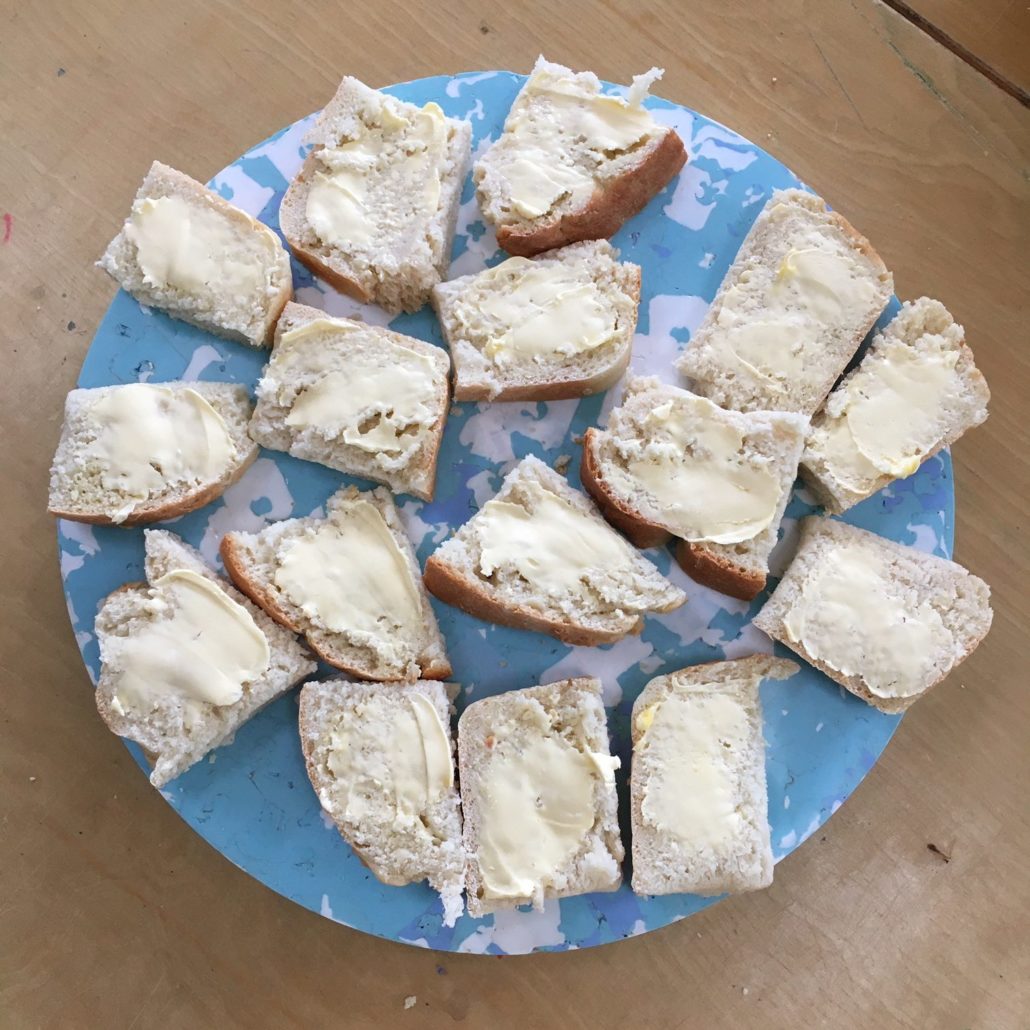
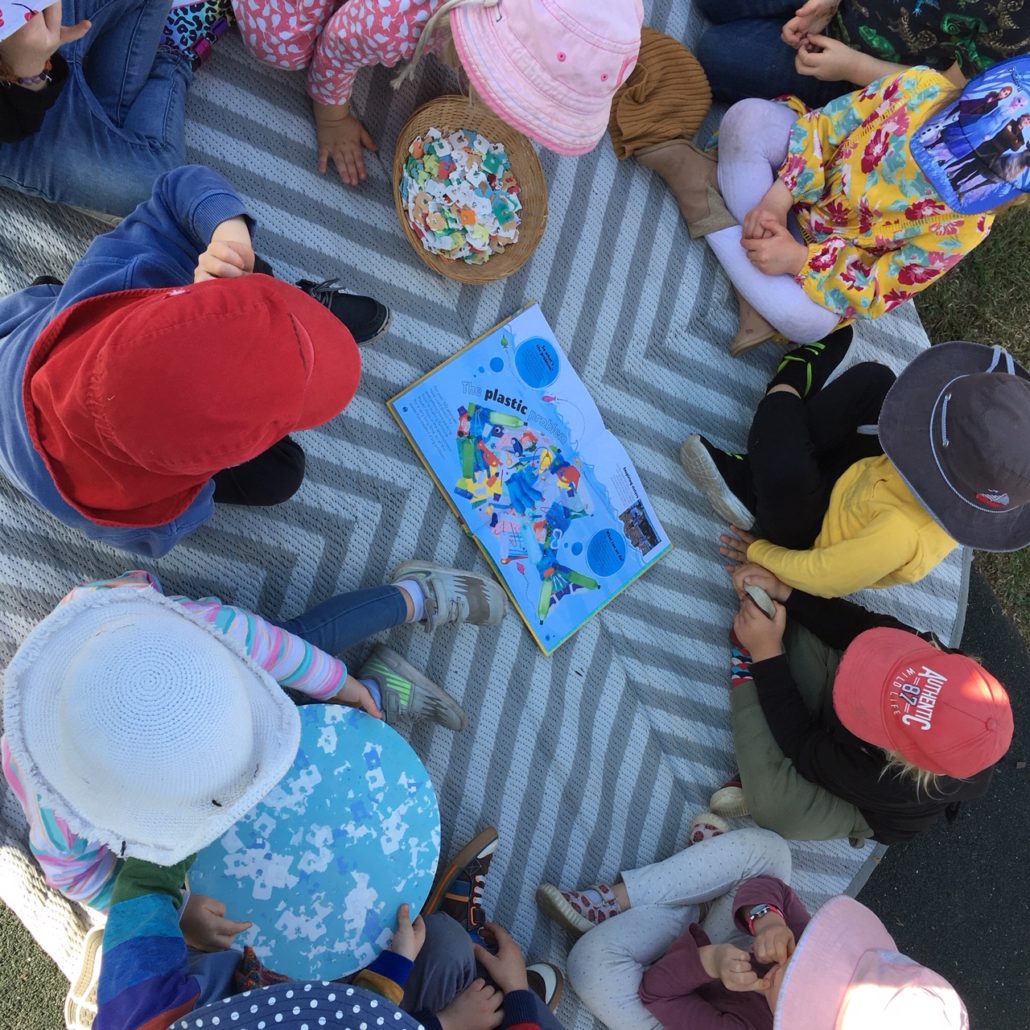
KINDERGARTEN
Food preparation.
Preparing and serving snacks or meals is an important part of a Montessori classroom. The children learn about giving to others, belonging to a community, cooperation and working as a team. Skills for preparing food include: washing, chopping, peeling and presenting. Learning these skills helps children to refine their neurological processes (such as concentration and focus) increase muscle strength and hand-eye coordination.
The Kindergarten children enjoy preparing a fruit morning tea for their peers. They planned which fruits to use and how many bowls, plates and utensils to collect. The fruit was presented beautifully on plates and children were invited to a sharing morning tea together. The children discovered many different types of pears for the tea including: packham, nashi, papple and comice. They also chose cherries and different types of citrus fruit. Preparing food also connects children to following a healthy diet and the importance of fruits and vegetables.
– Elizabeth
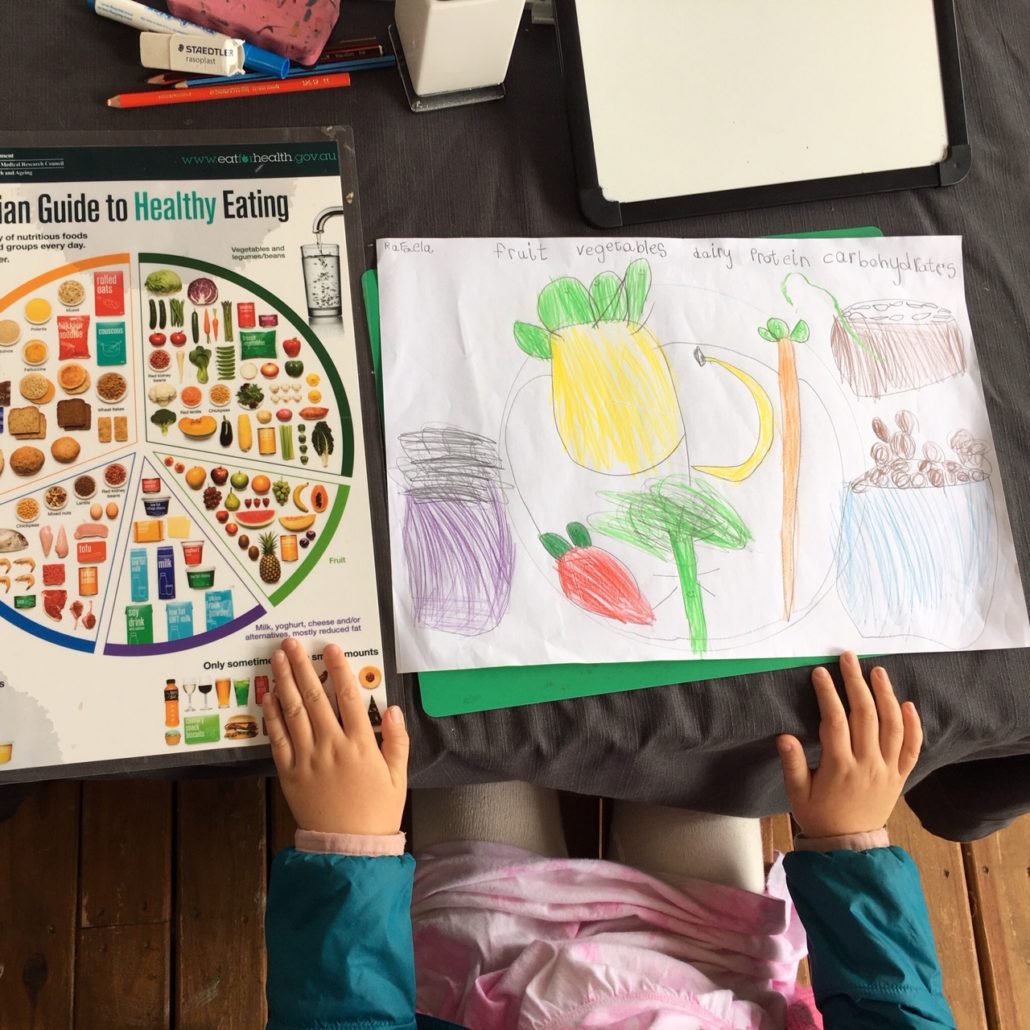
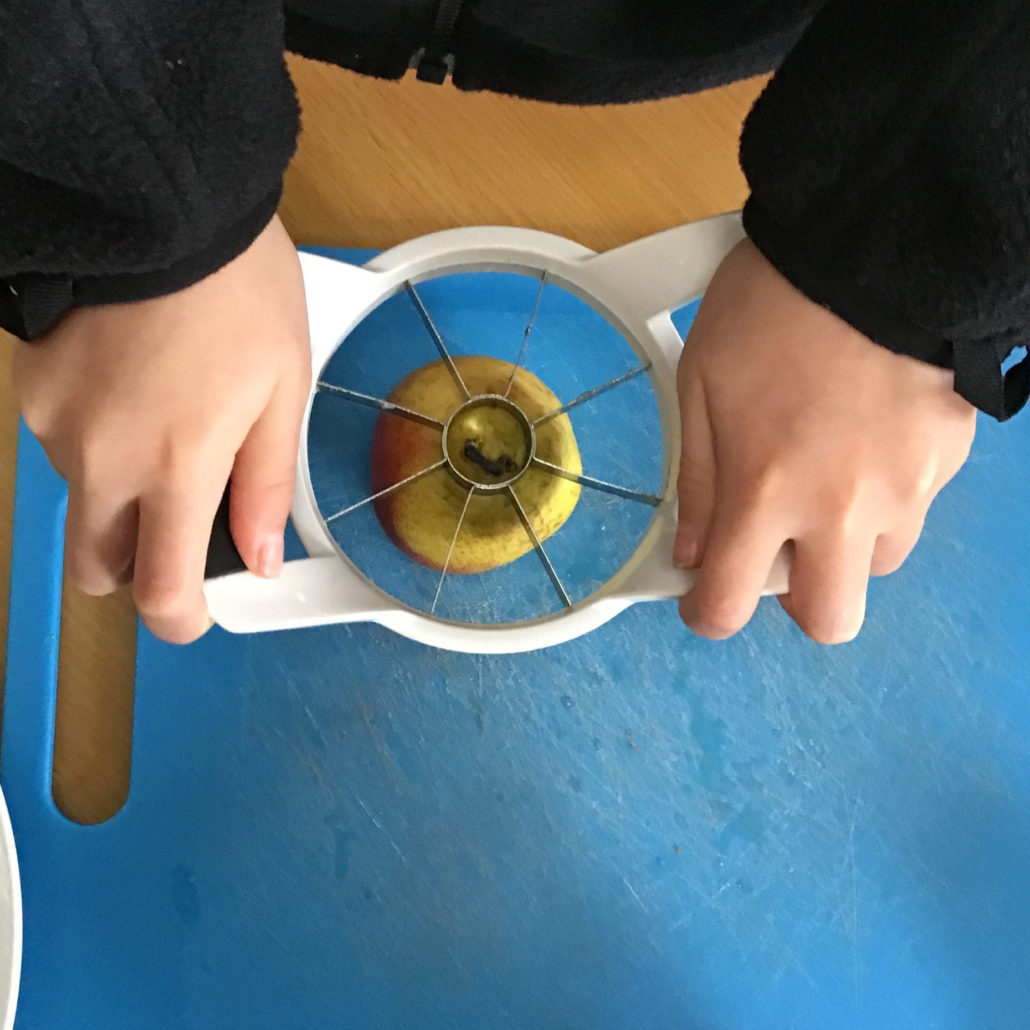
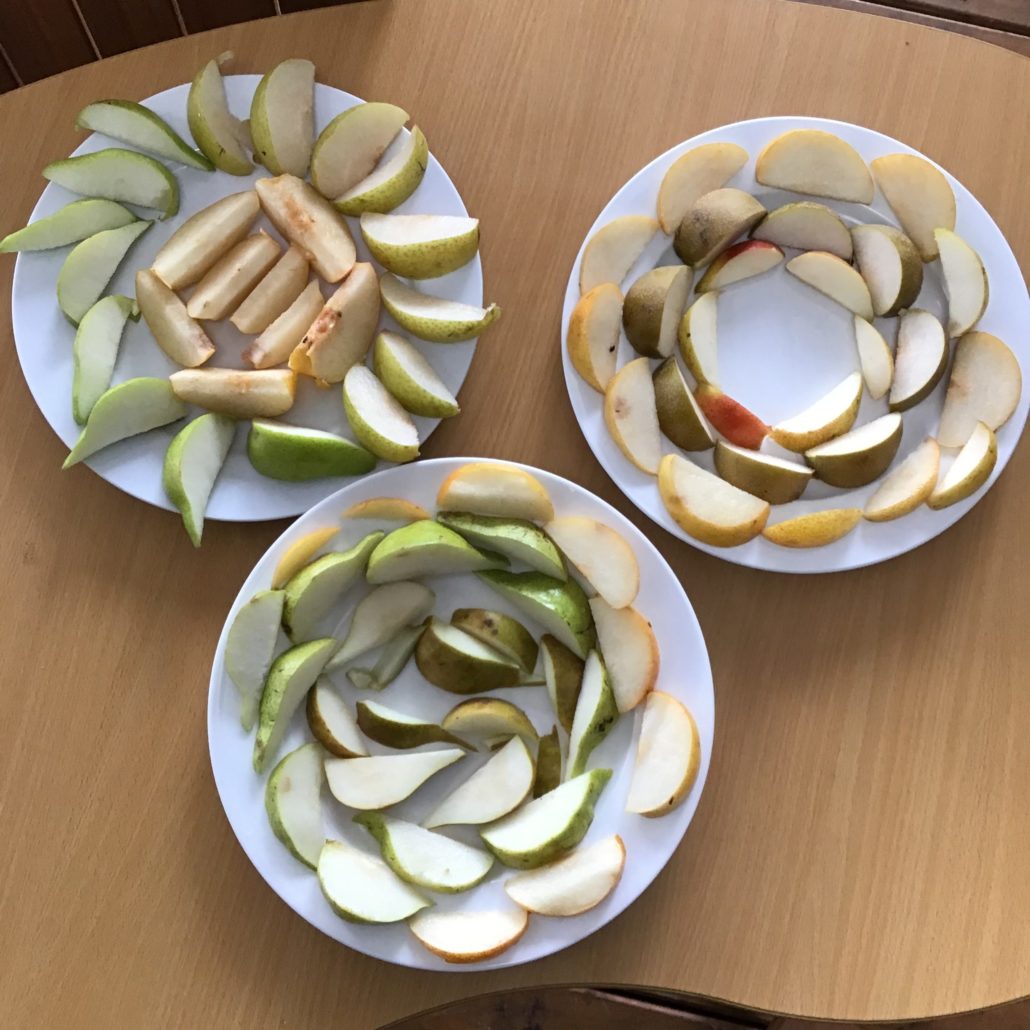
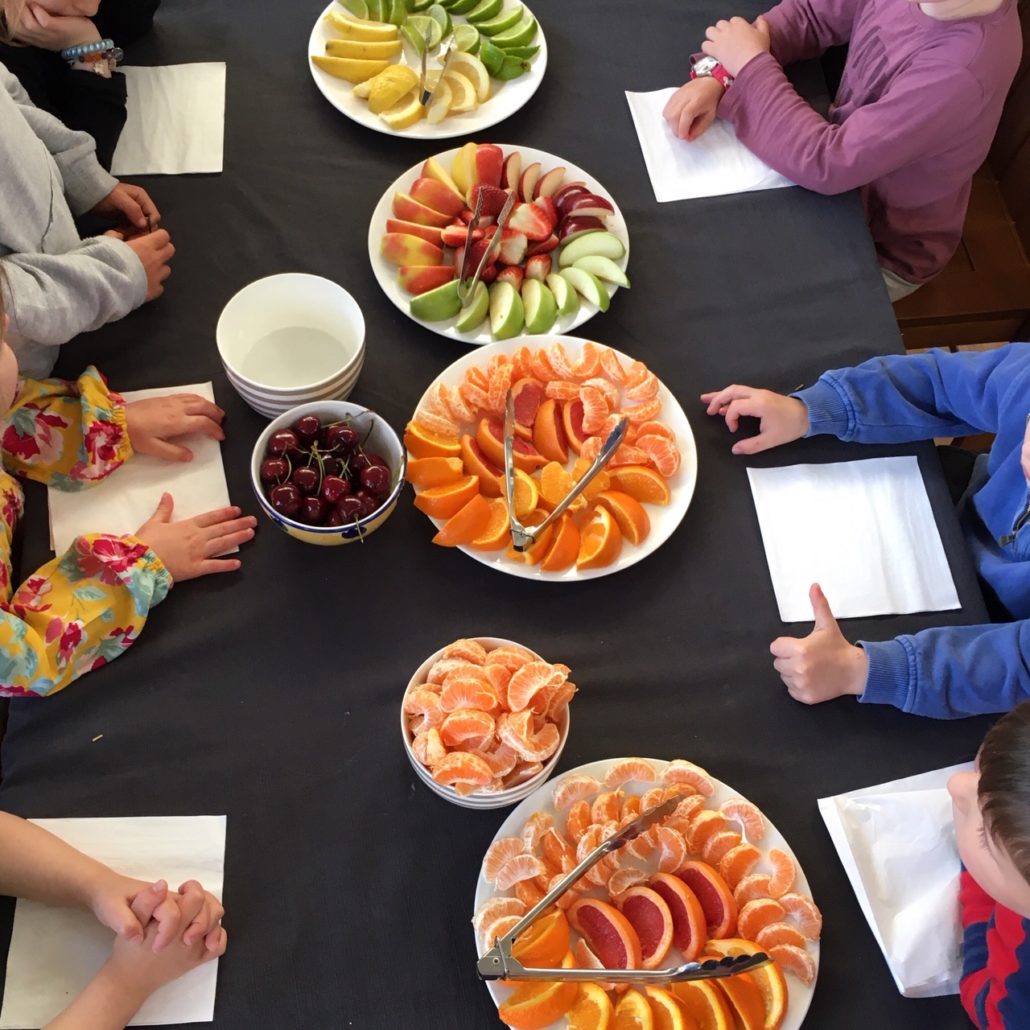
AIKYA | Stage 2
Welcome back to term 3.
We have had a lovely start to term 3 welcoming Anuuk, Jemima and Dylan to the Aikya class. The change in the layout of the classroom has brought in much excitement among children as they continue to explore and rediscover the materials.
The children have been getting back into routine by planning their day in their diaries and using the materials. They have also received many presentations.
In our first week we had an outdoor group lesson on the Long Black Strip. The children listened carefully to the story of the Earth’s beginning and the evolution of life. We had a look at how recent the arrival and existence of humans is on the timeline and how much more has happened on earth before us! This is an impressionistic lesson that evokes wonder, awe and gratitude in children. We also took this opportunity to talk about humility in the classroom in our group time.
– Laura, Toby, Harshitha & Philippa
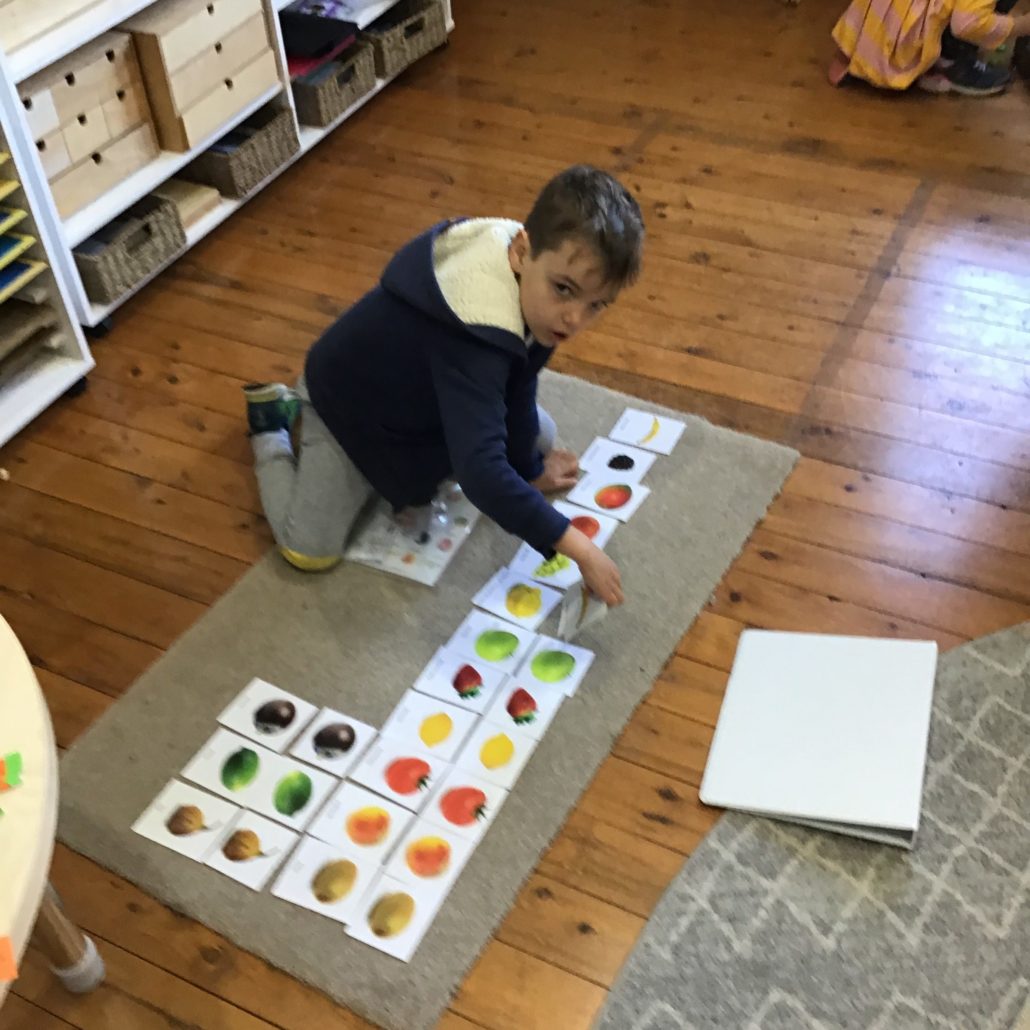
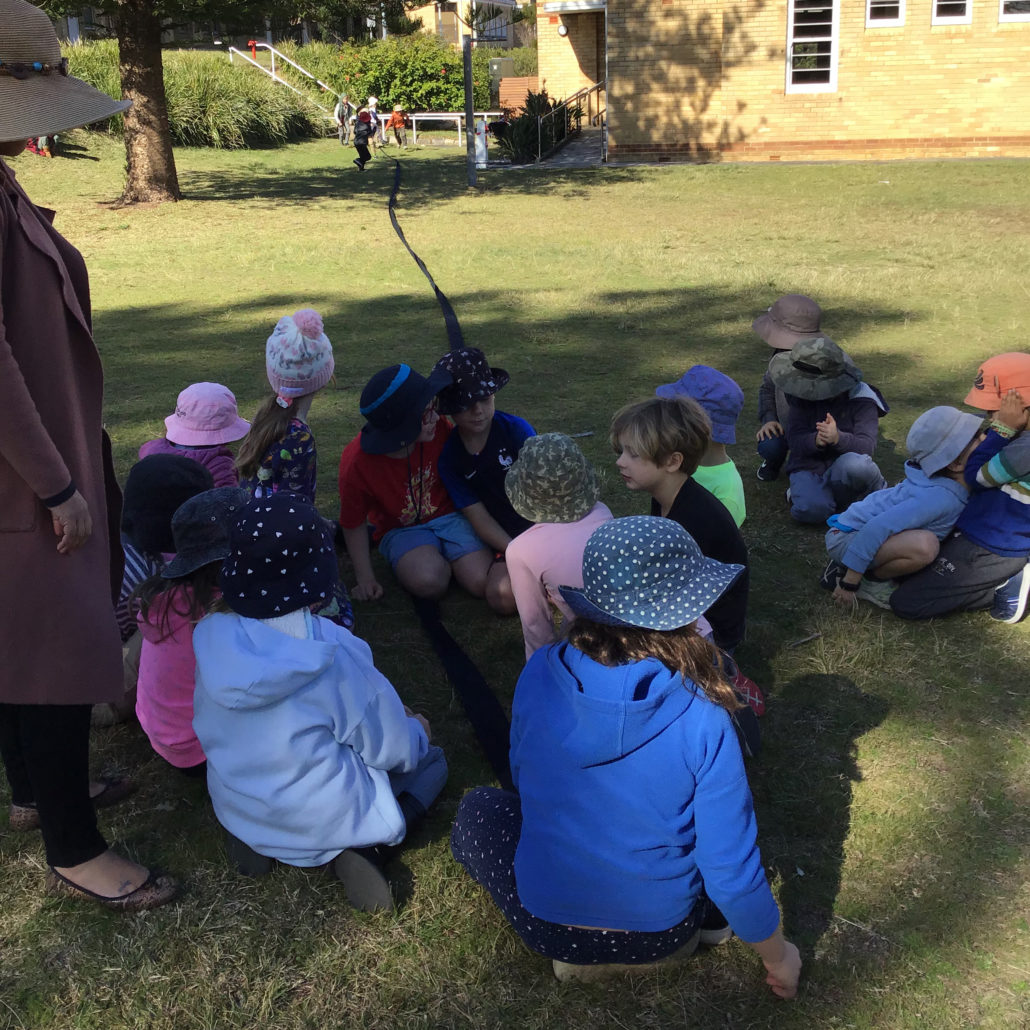
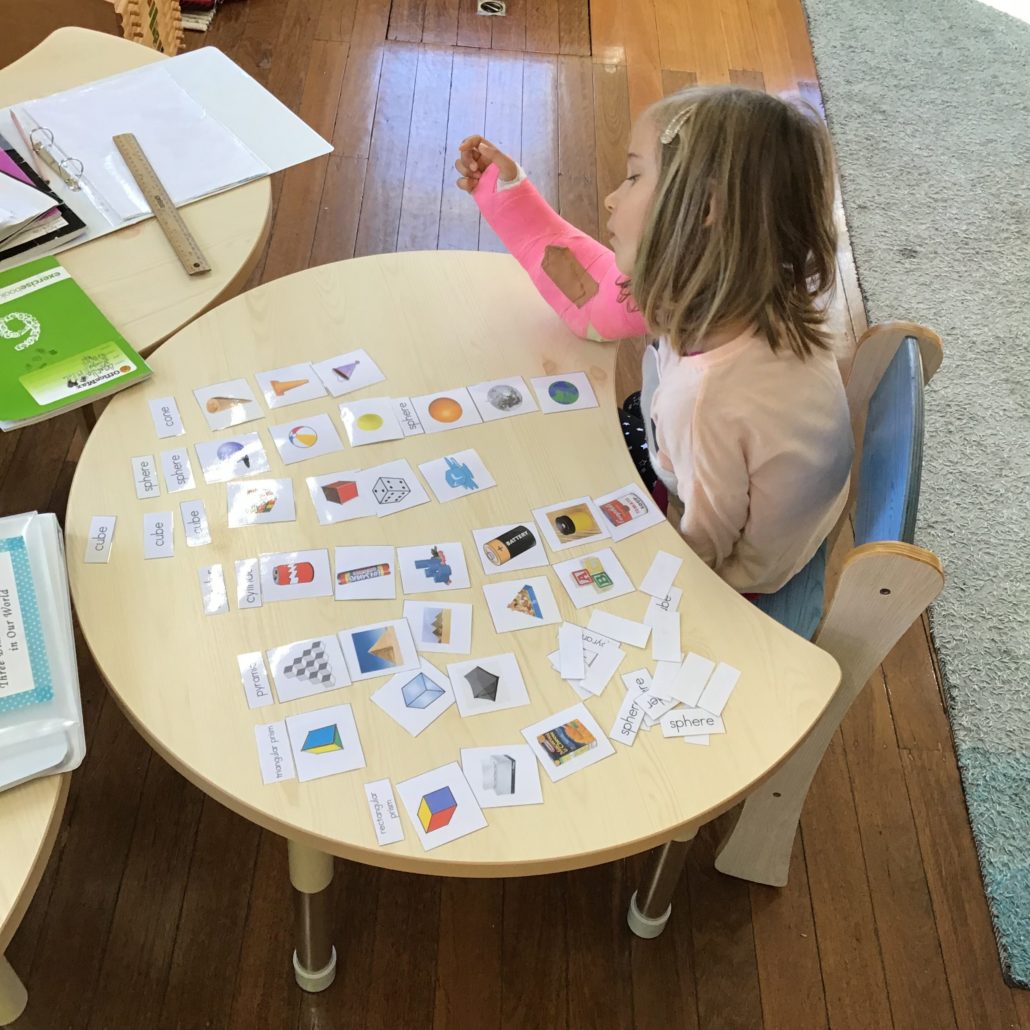
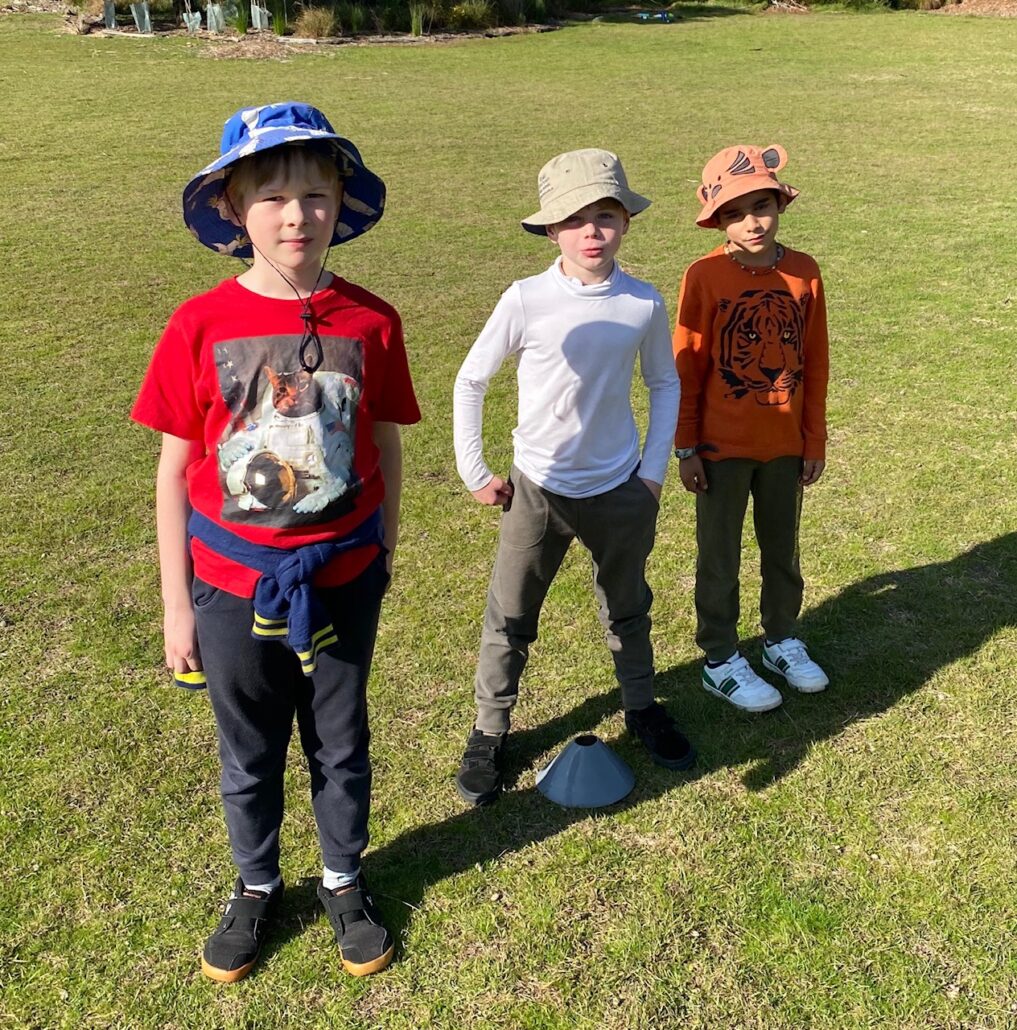
YANI | Stage 3
This term we welcome our new teacher, Laura! We are happy to have her in our classroom, we are excited for the new changes, as it gives all of us a new chance to adapt, learn and enjoy our new teacher.
We have been doing felting which is made with wool and we made balls and felt pictures. We did the pictures by layering the wool till we got it how we wanted it and then we wet them with soap and water and then rolled them. The balls were made by getting a clump of wool and slowly wetting (with soap and water) and rolled. We really enjoyed making our own felt.
During the last few weeks of term 2, all students were assigned a follow up to do a research project on whatever they wished and presented it during the last week of term. There were a variety of different topics such as the history of The Titanic, information on the Coral Reef, Space, Reptiles, Global Warming and other interesting topics.
Milly’s Mum Rachel came to visit our school how talk about how we can learn to express our needs and wants in a positive and supportive way. We all had the chance to think about what needs we may feel and want in our day to day life, such as communication, trust, honesty and we wrote these words and decorated them to be able to use when we need to express our needs to our peers.
By Oskar and Jessica
– Claire, Jessica & Philippa
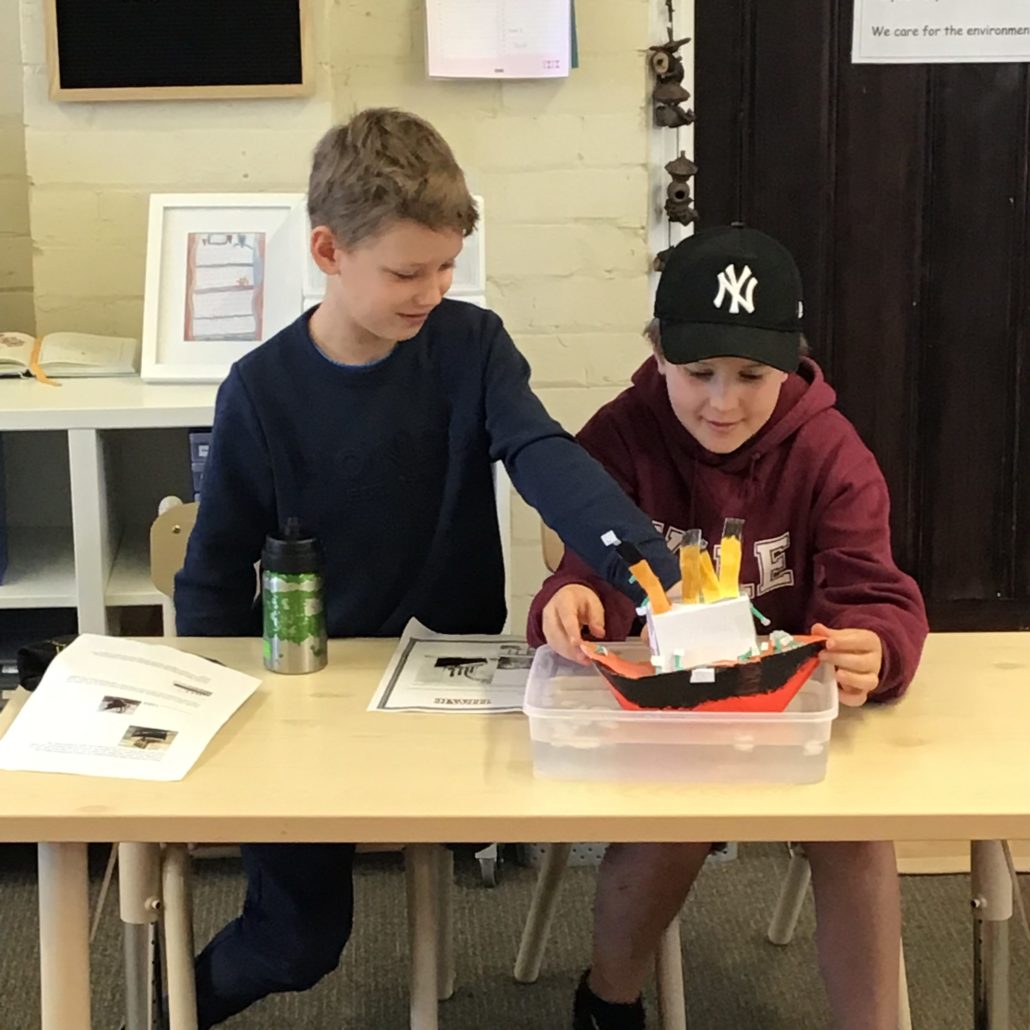
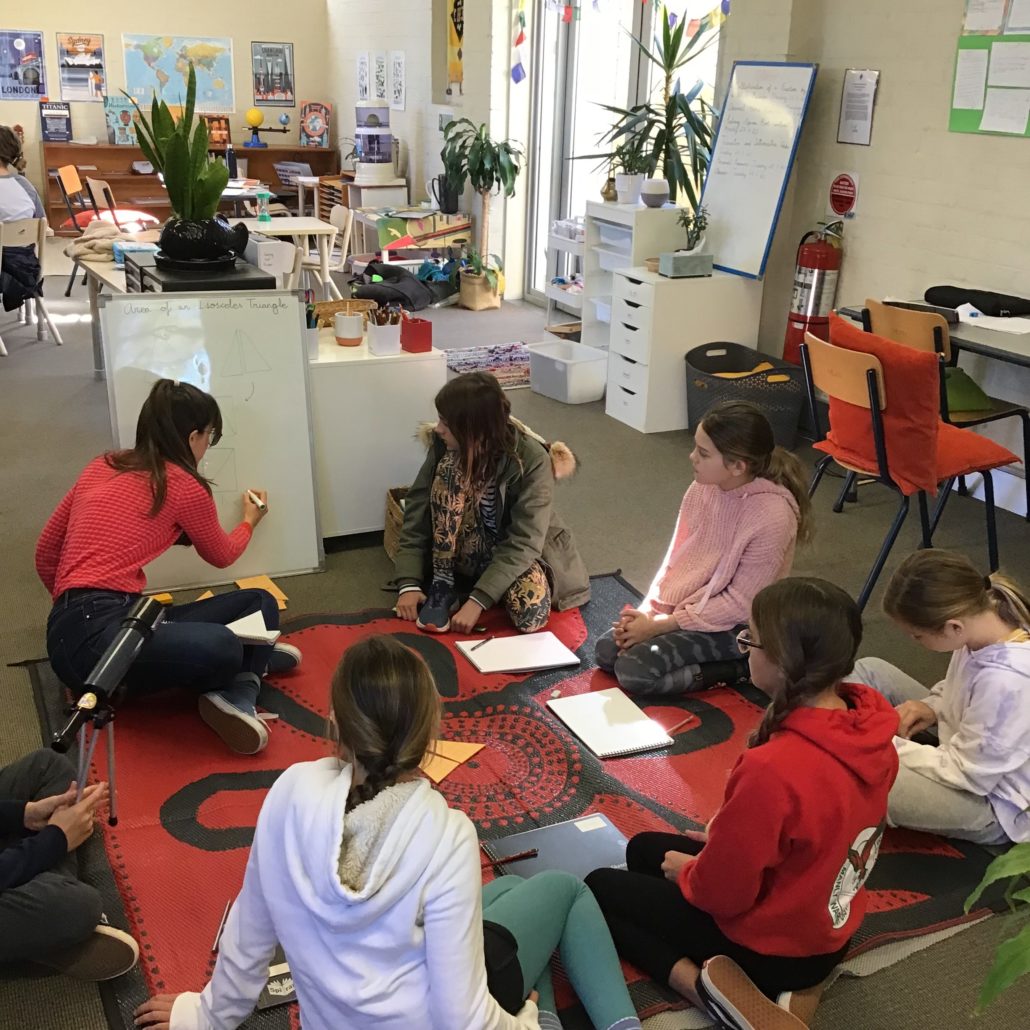
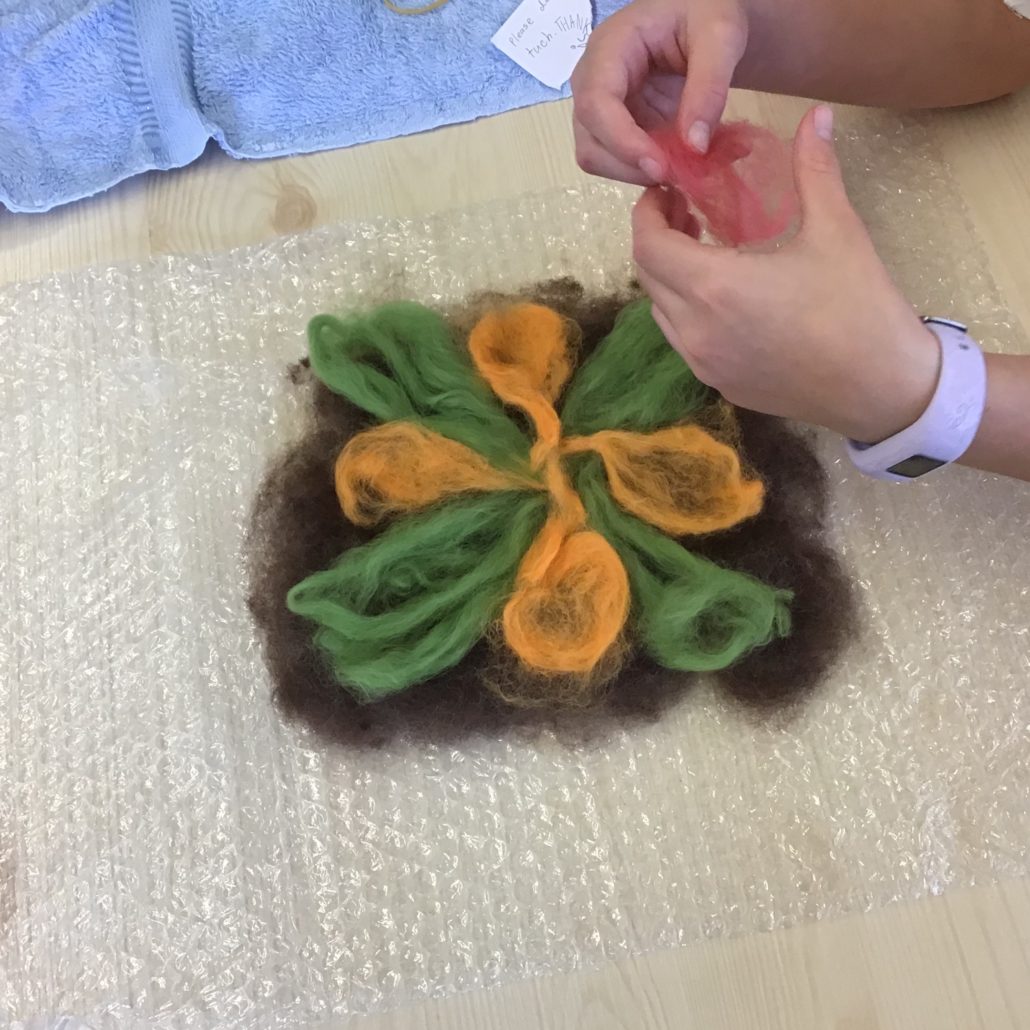
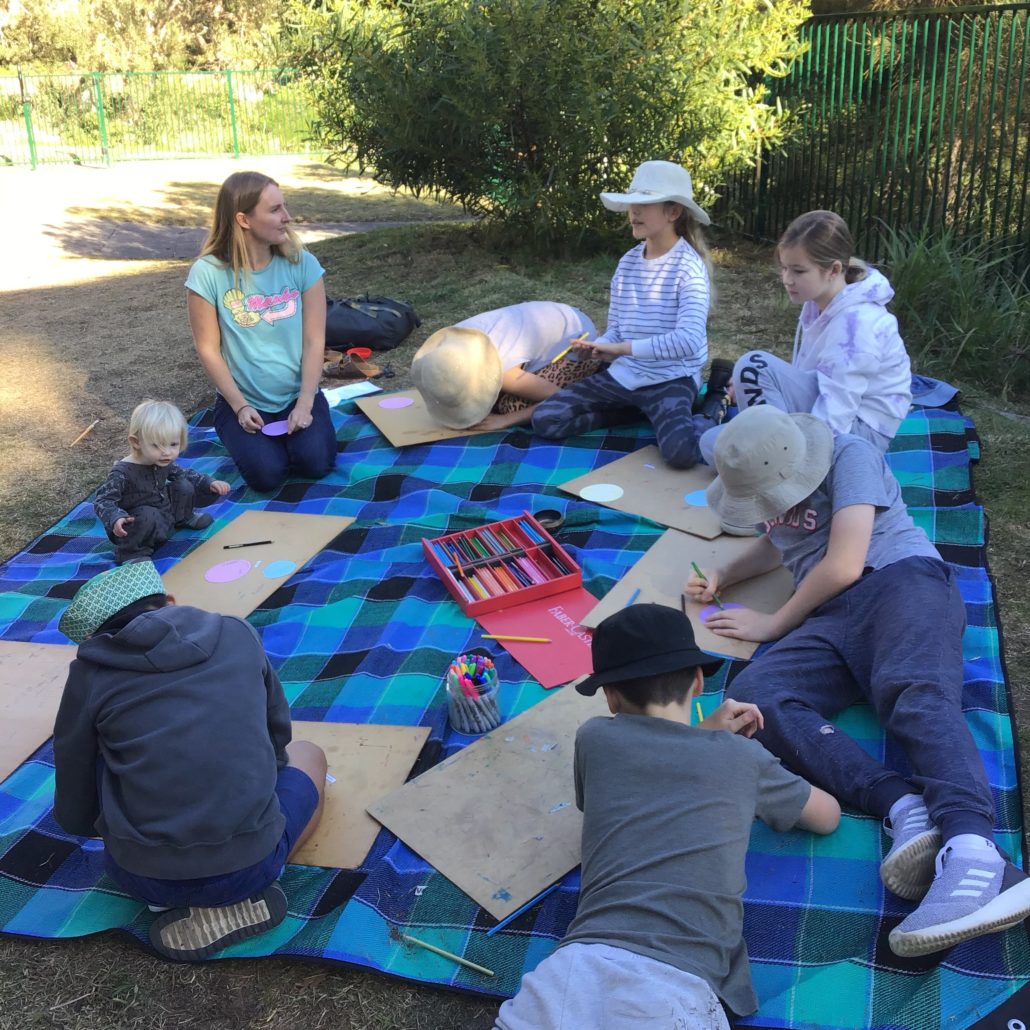
Farmhouse | Primary OSHCare
Dear Families,
Welcome back to Term 3, we hope you all had a lovely break and are excited to be back! This term we are excited to introduce our new health and well being program “Moovosity”. Moovosity is a new initiative to help promote sport and outdoor play in our program. Each week we plan to implement Moovosity at least twice a week. Some examples of what we have already done this term is “Toilet Flush” and “Beat the Ball”.
This Term band will be re commencing on Tuesday mornings. The first group will run from 8:00am-8:30am and will focus on children that play instruments out of school. The second group will then join the first group at 8.30am and will focus more on having a go at new instruments. If you are interested in joining or re enrolling for band, please book in via the Kidsoft app.
We are also currently brainstorming a community initiative to work on this term. Last term we made cards for the elderly to brighten up their centres, if you have any suggestions as to what we could do/ get involved in, please let us know!
If you would like more information about Primary OSH Care or our centre and how to enrol, please visit our website www.primaryoshcare.com.au
From Sarah, Ella and all the OSHC staff at Farmhouse Montessori OSHC Centre
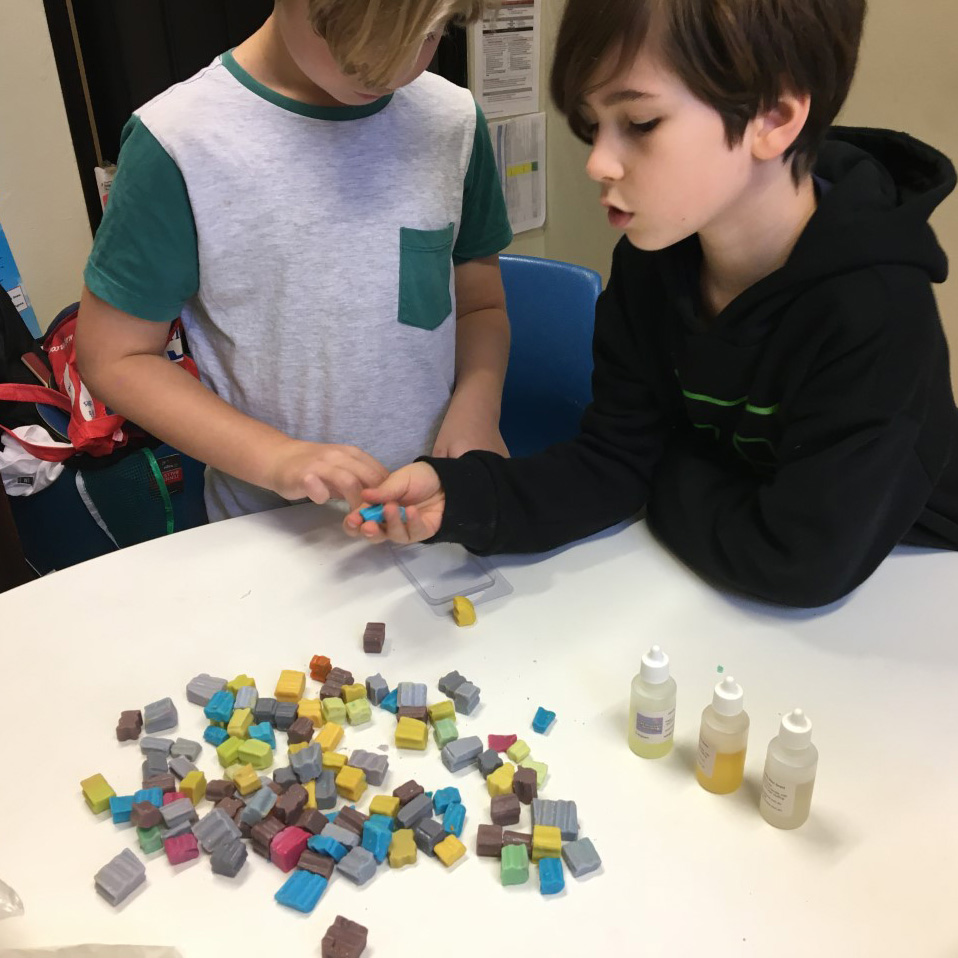
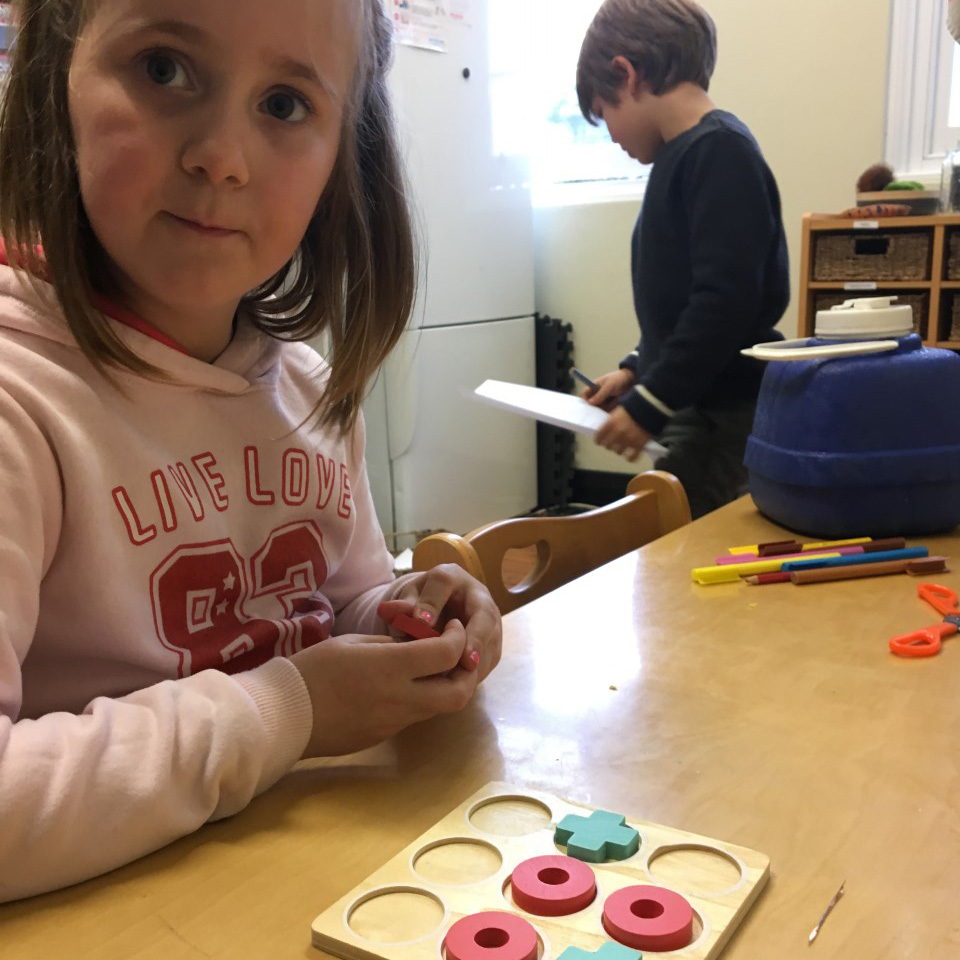
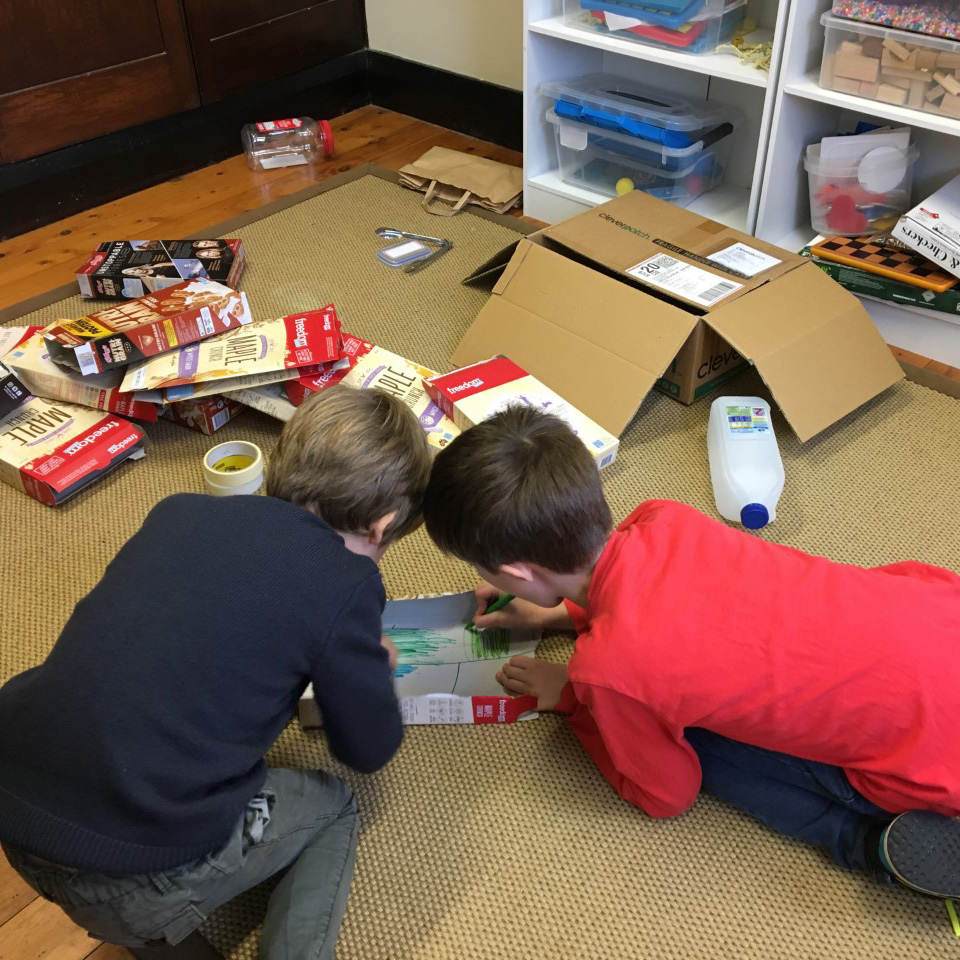
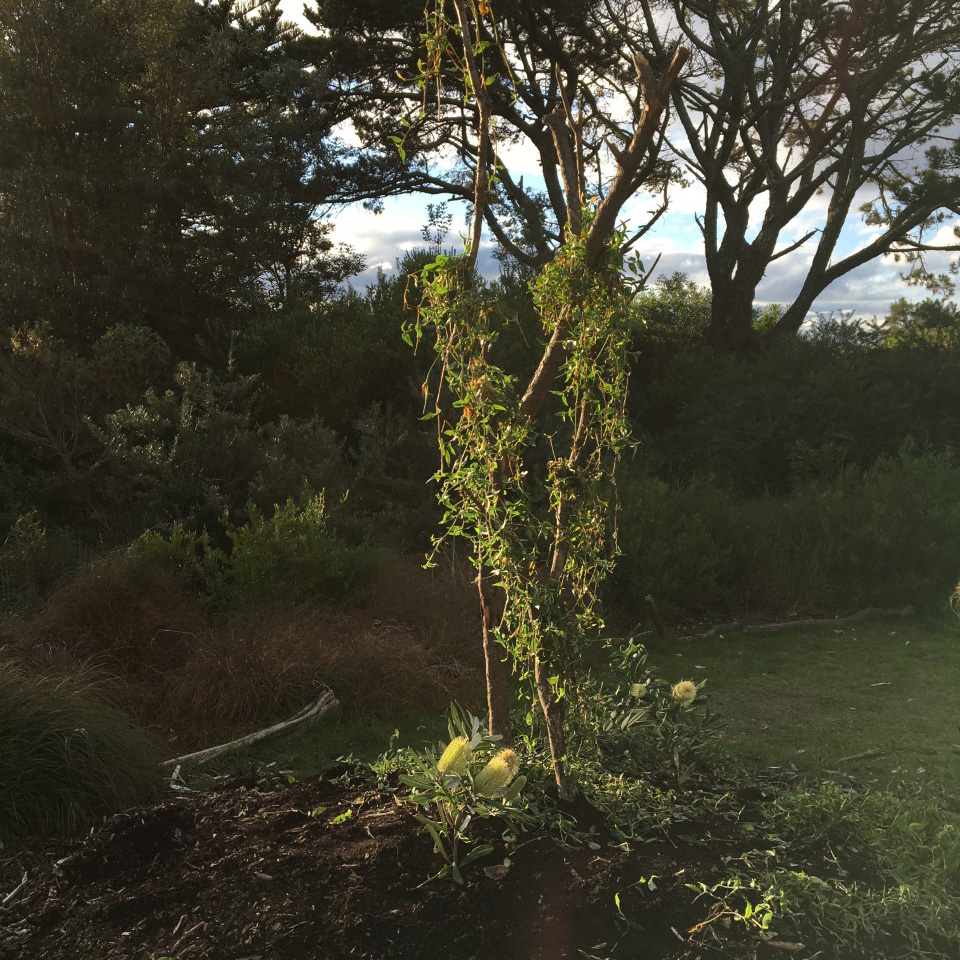
You may also like
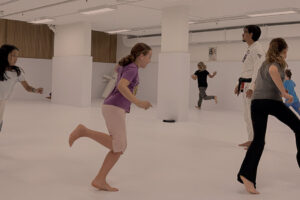
2025 Newsletter Term 02 | Issue 01
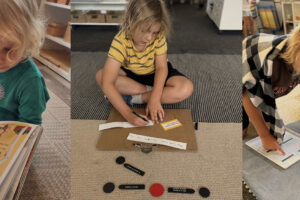
2025 Newsletter Term 01 | Issue 02
